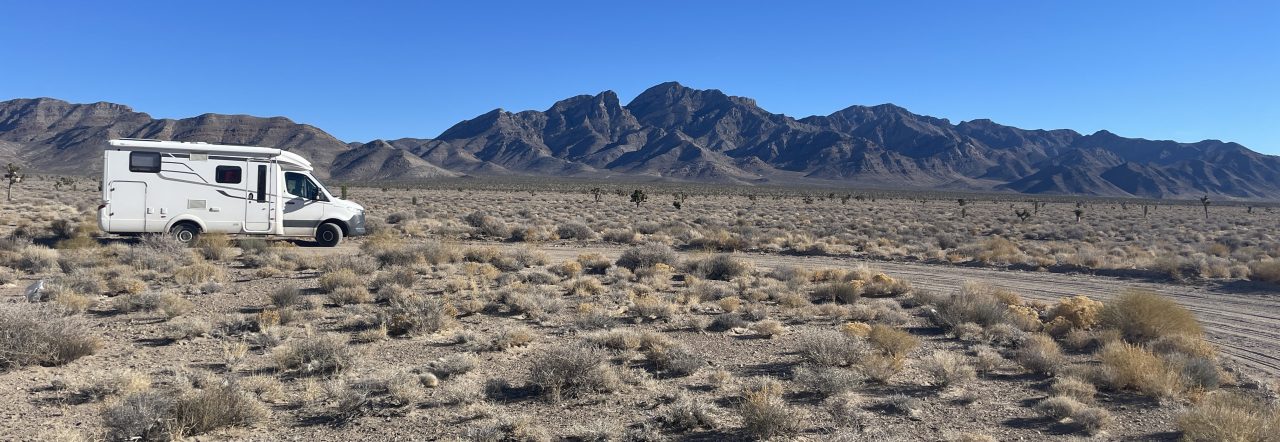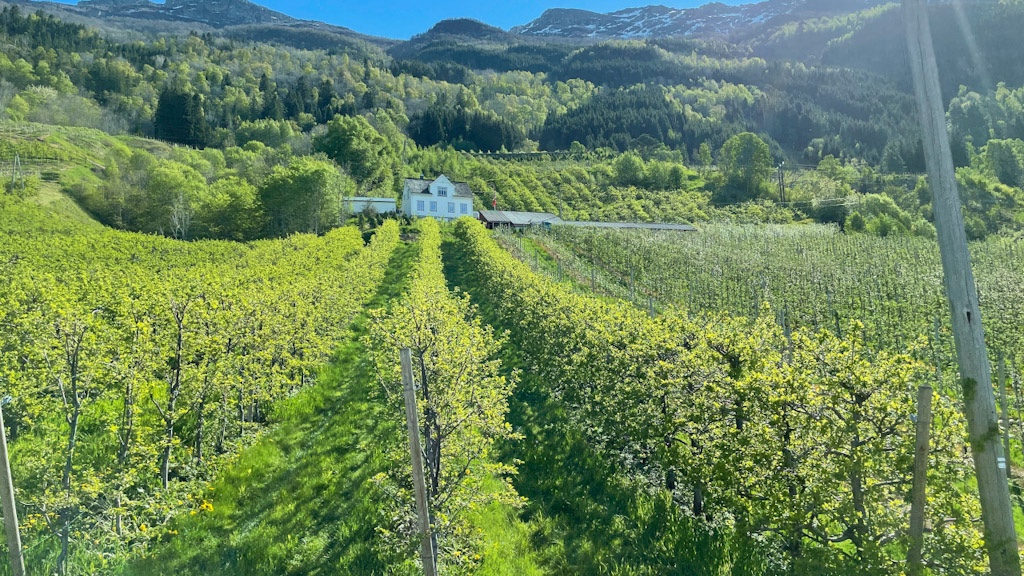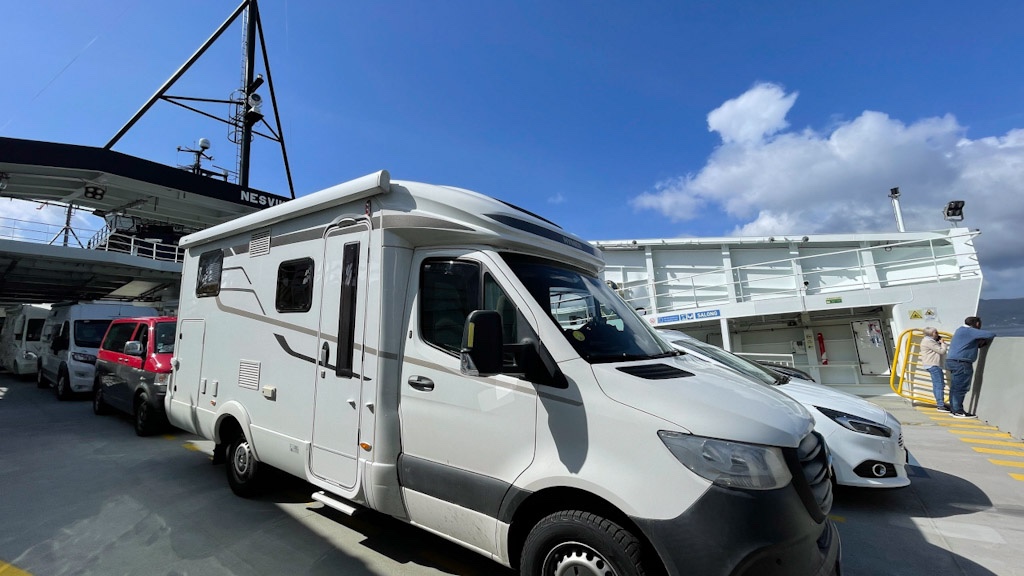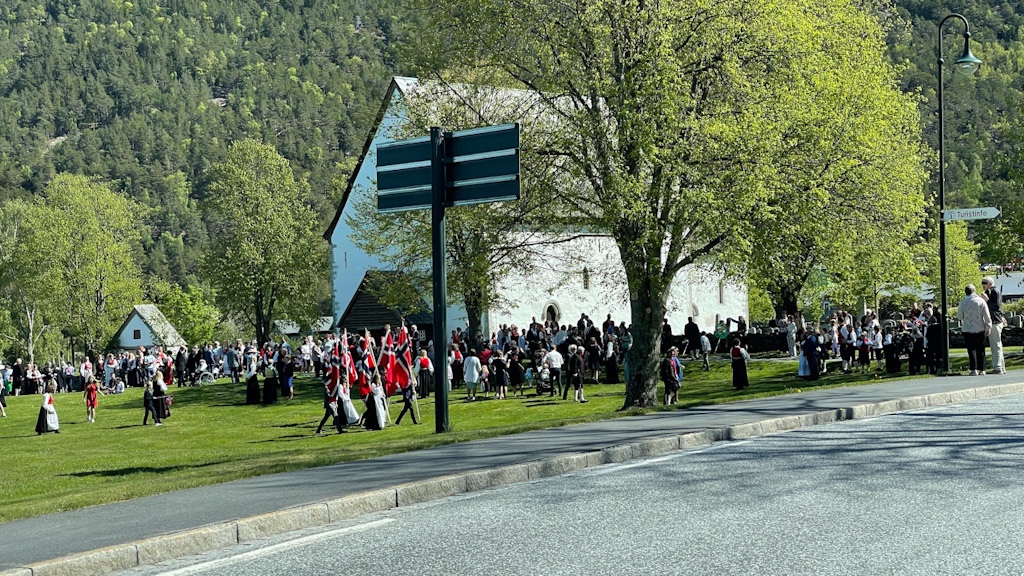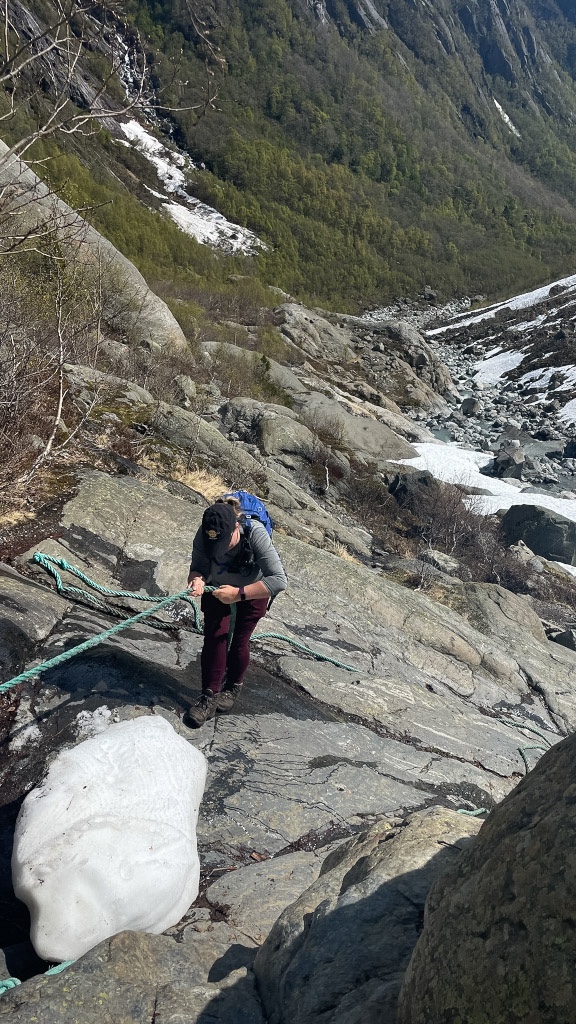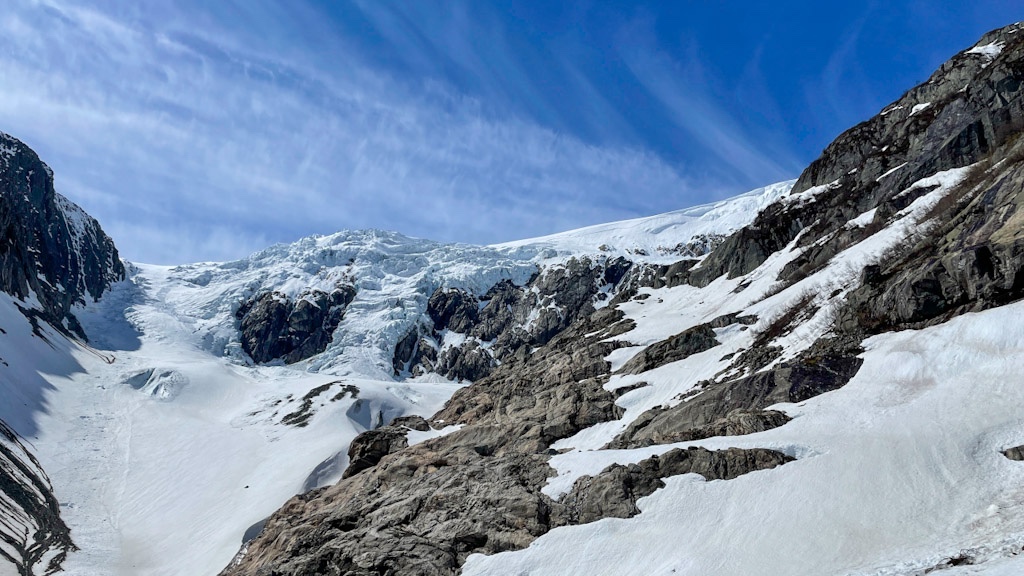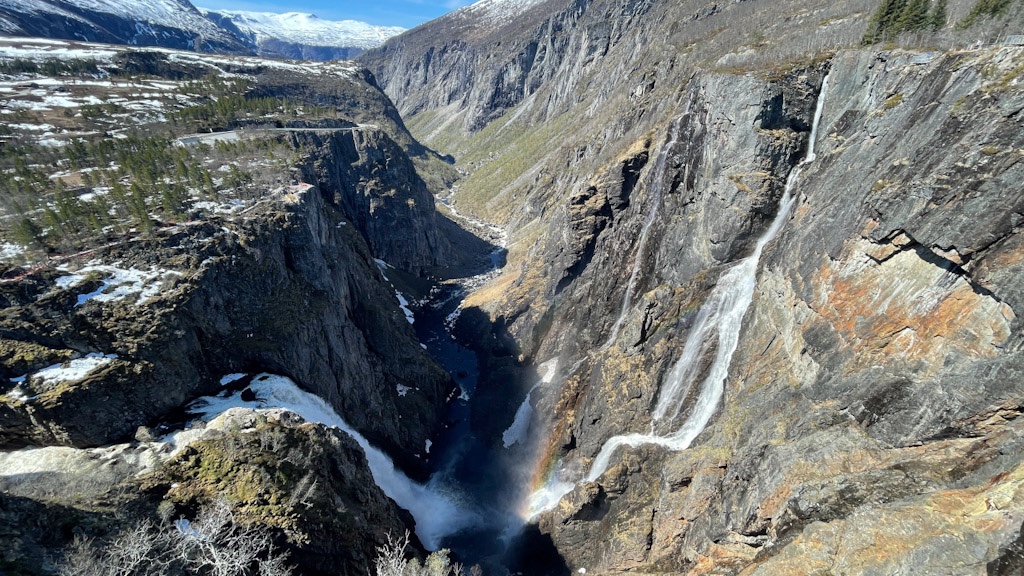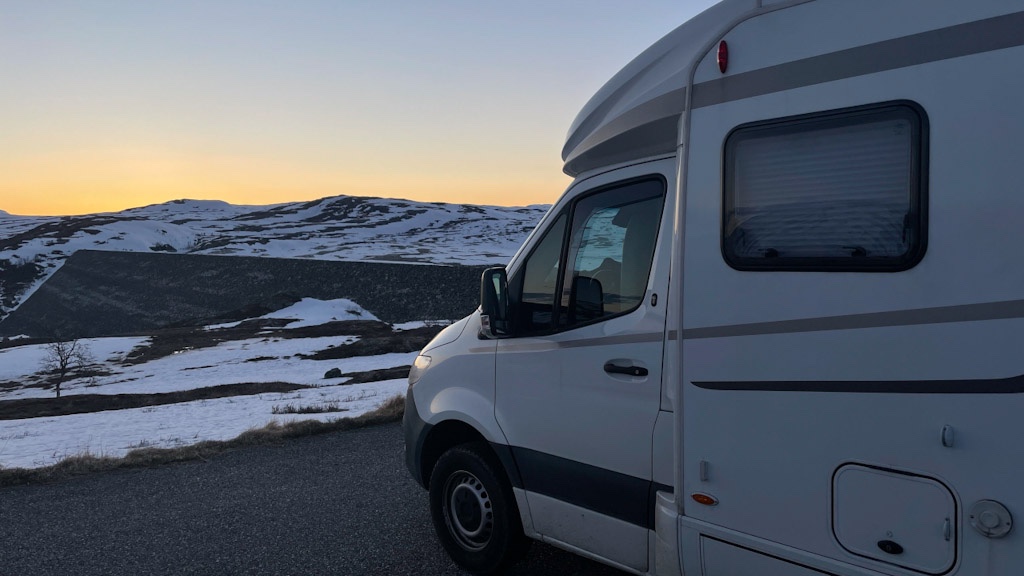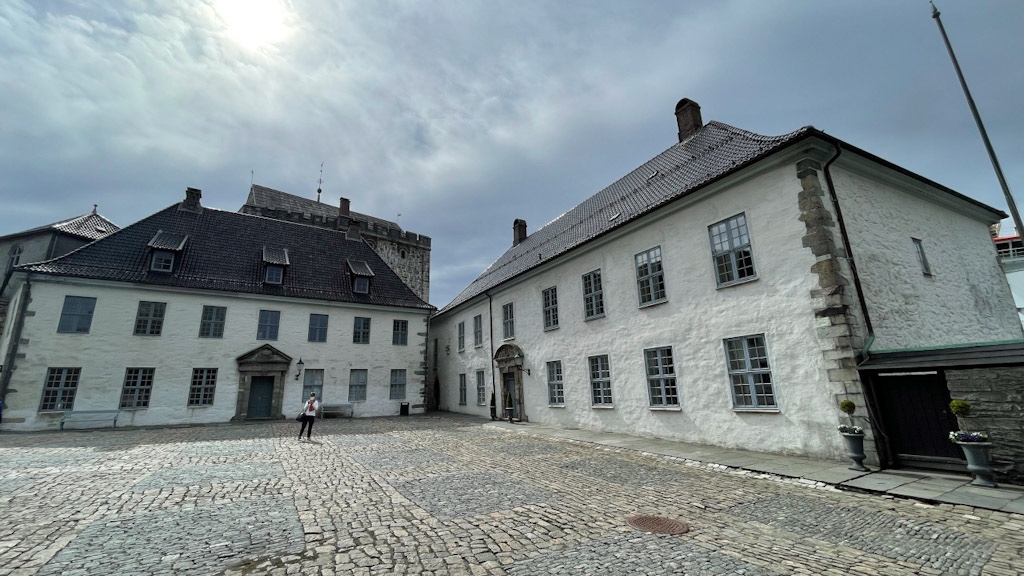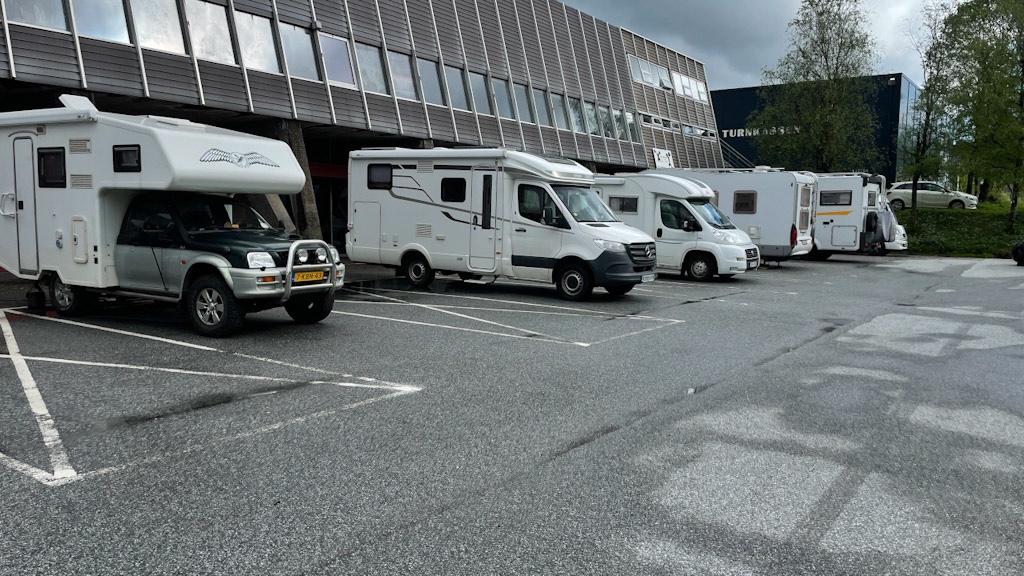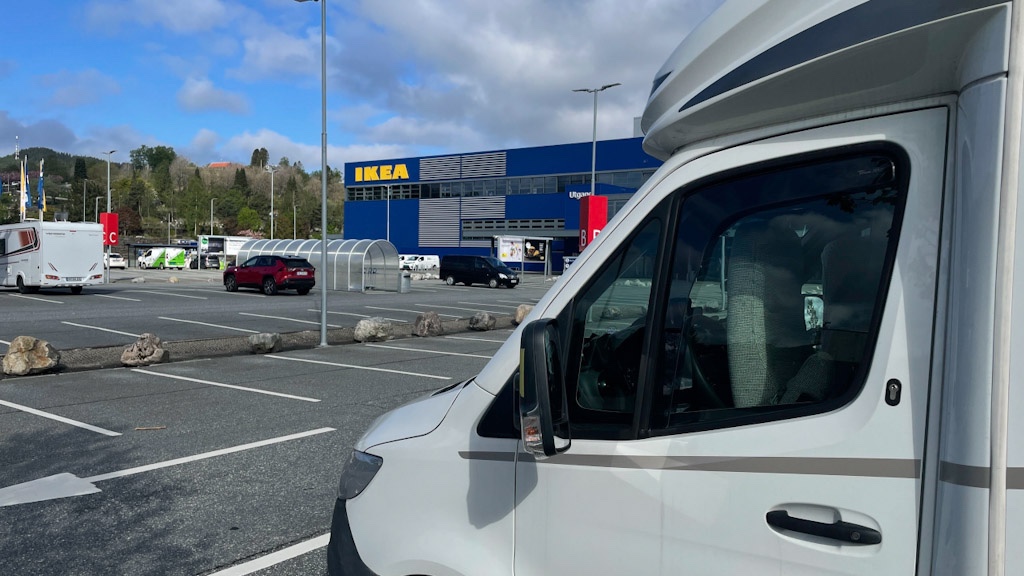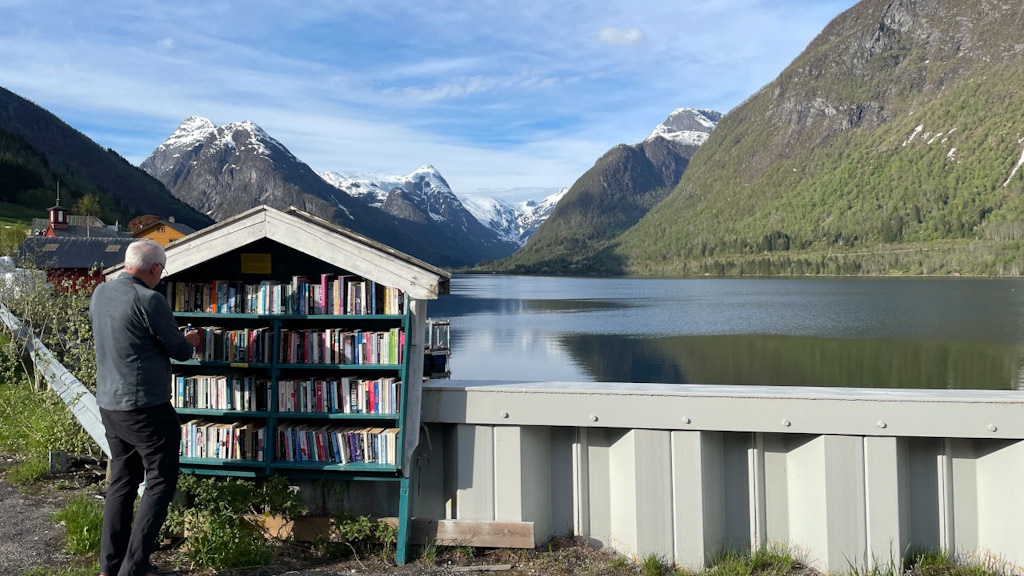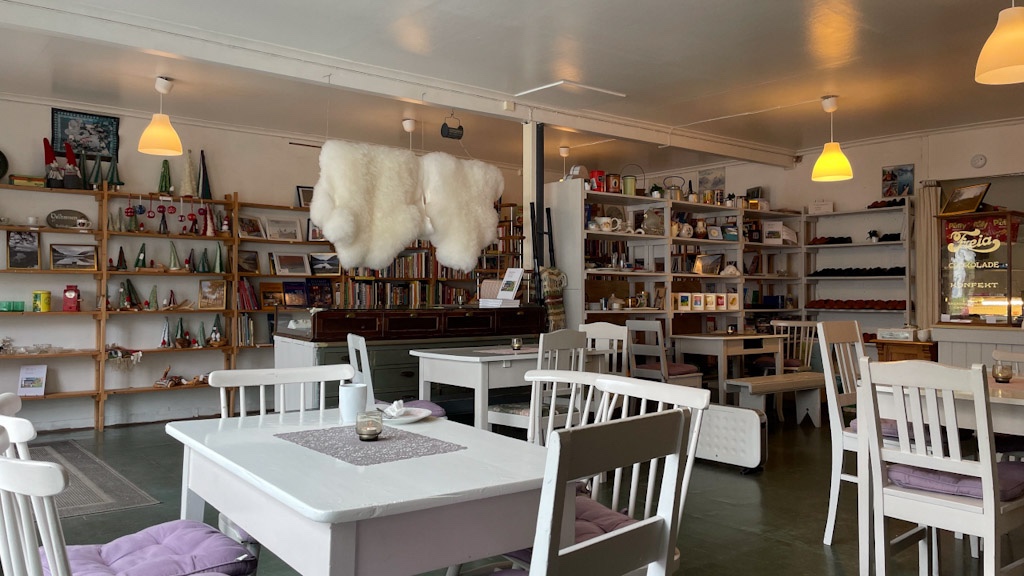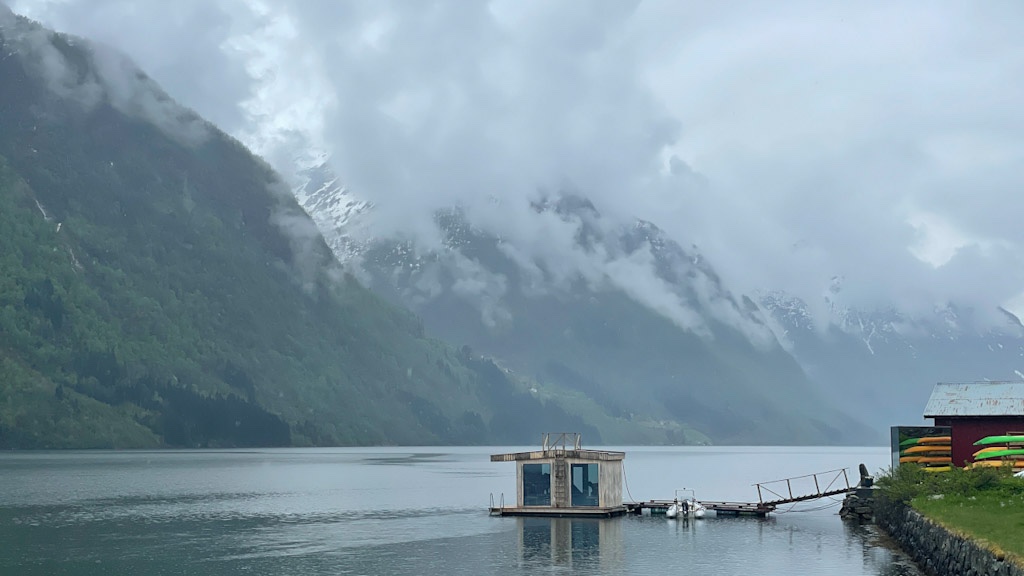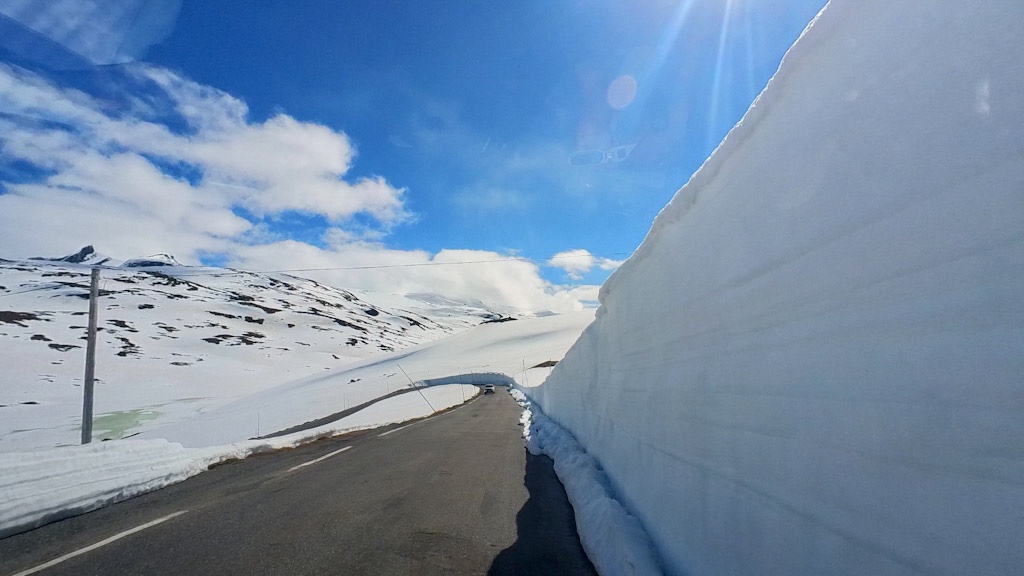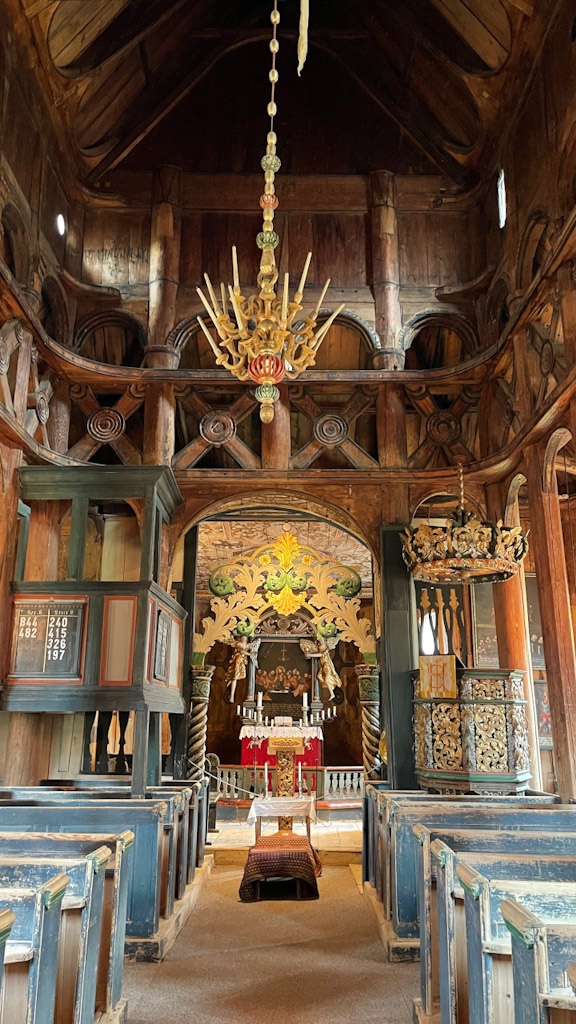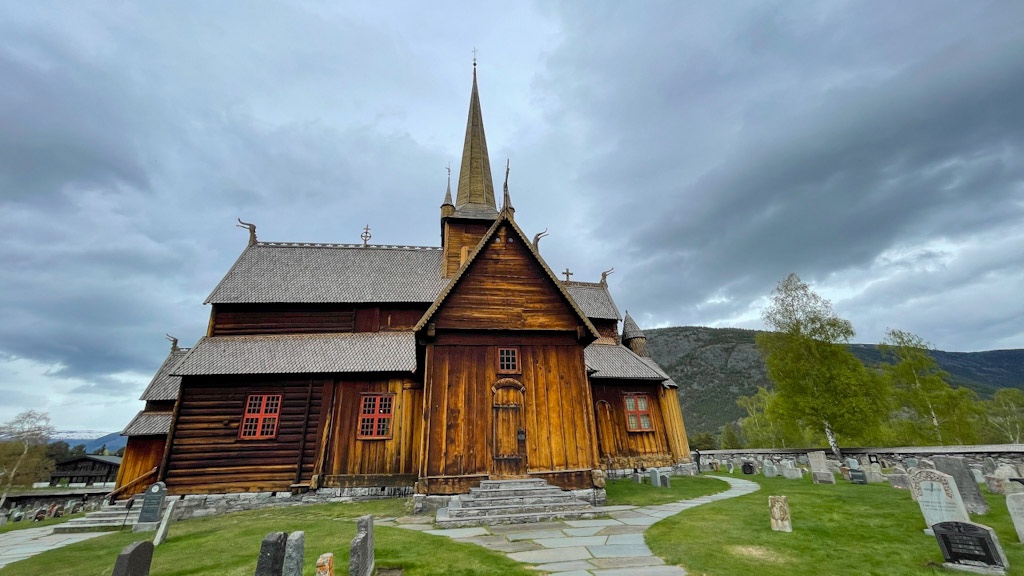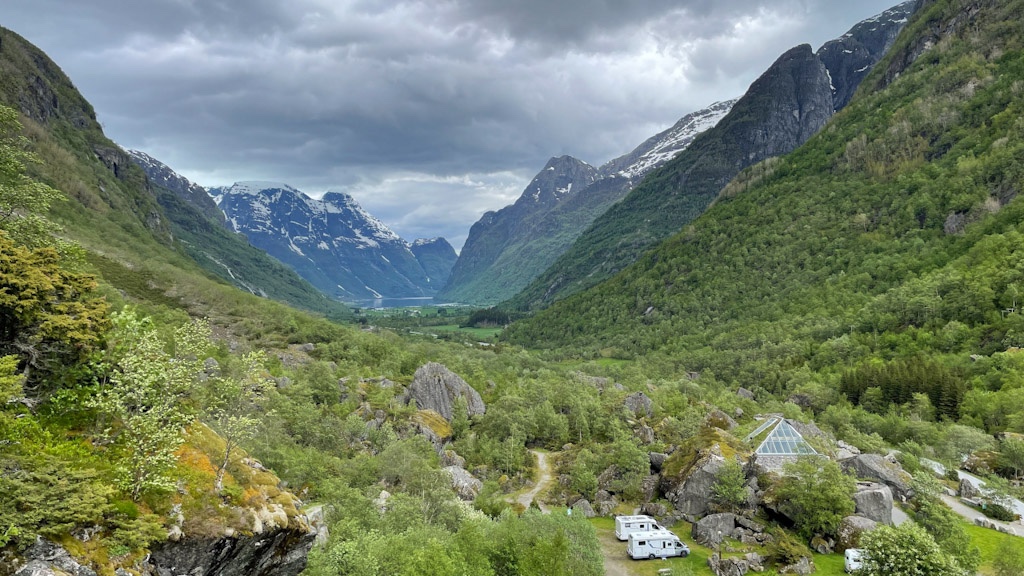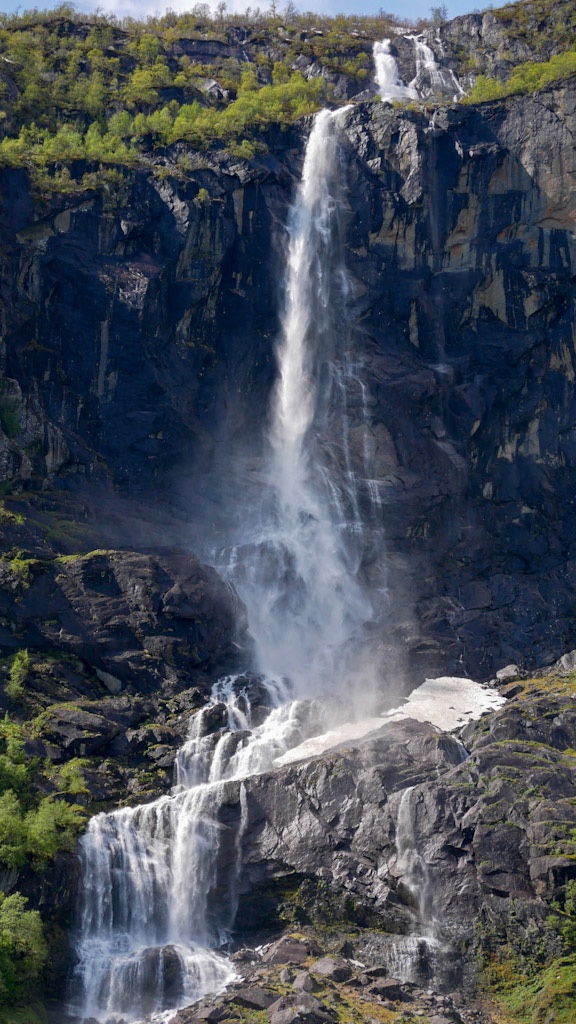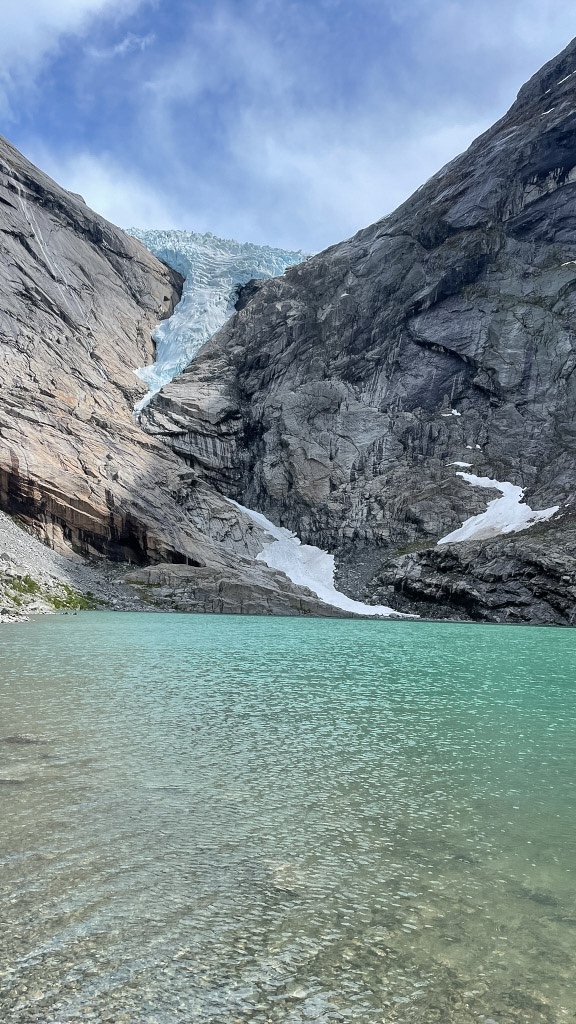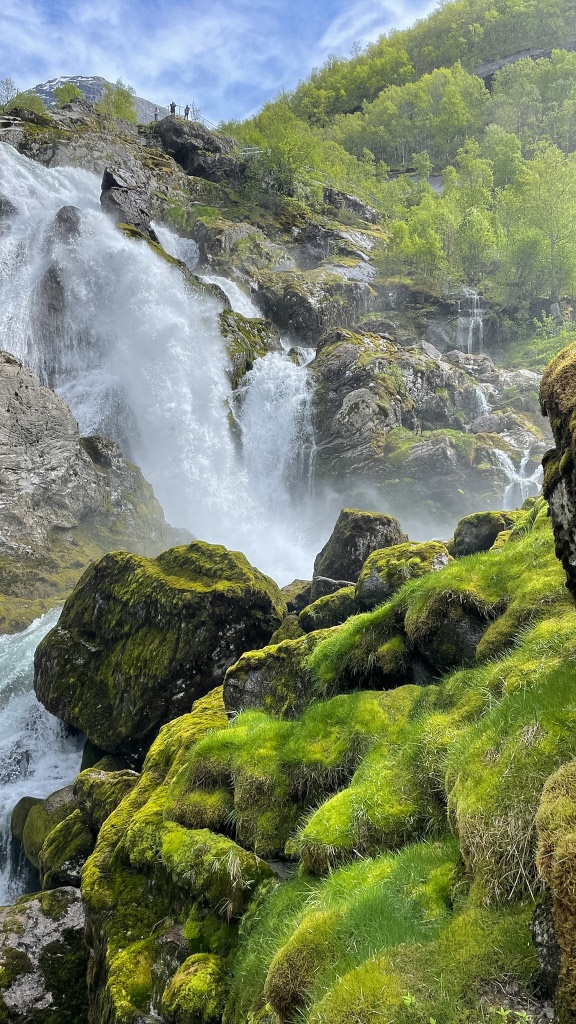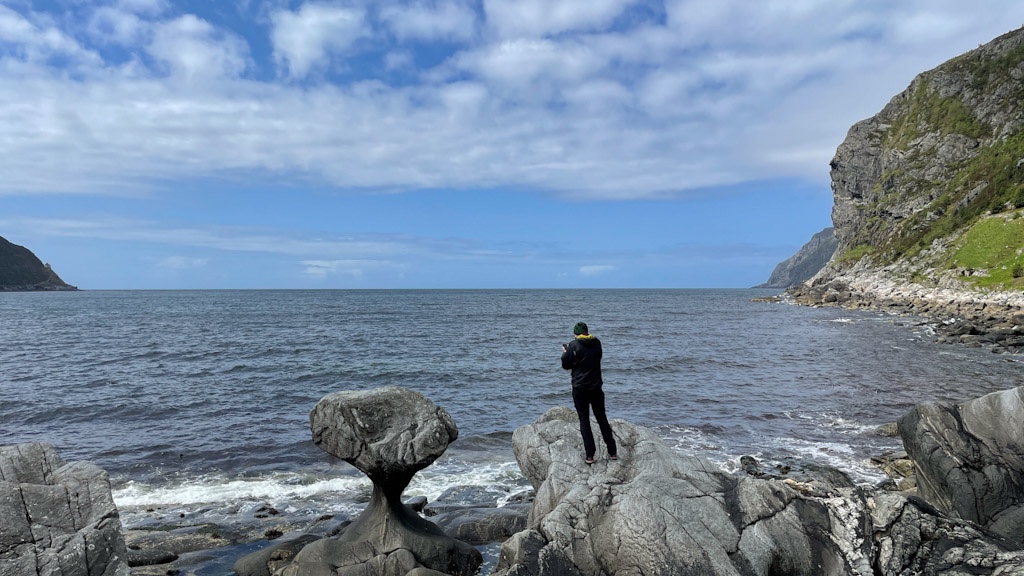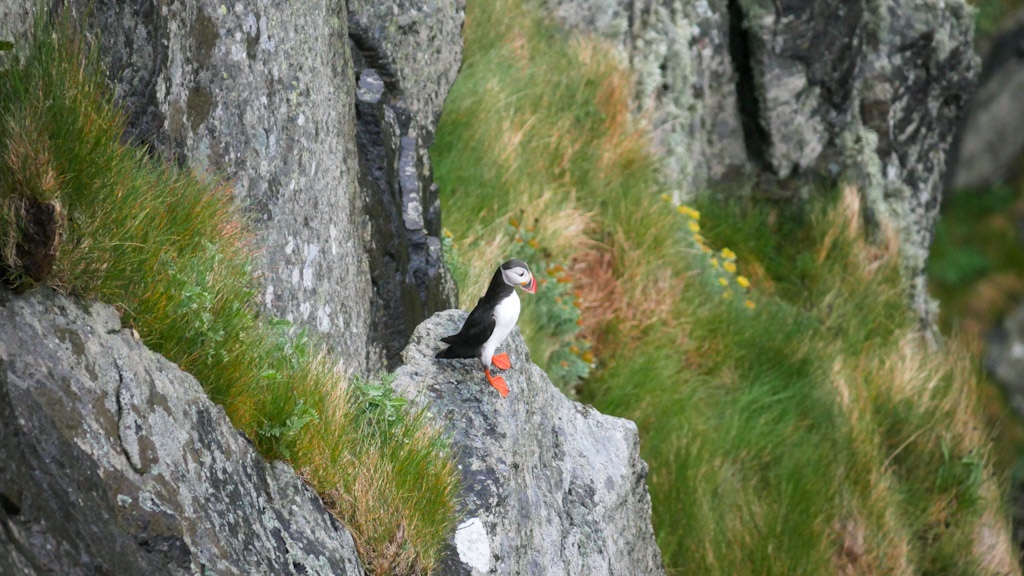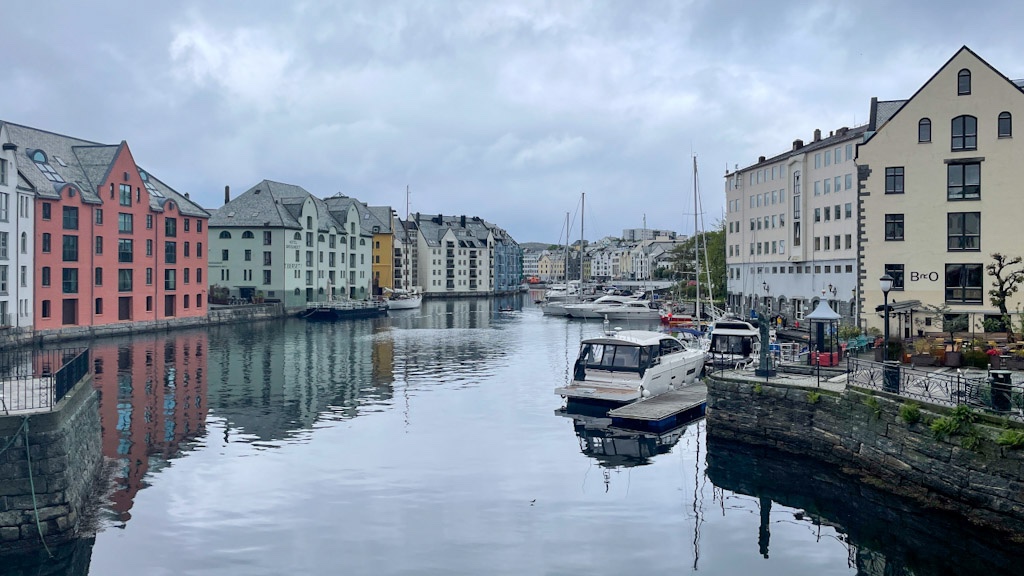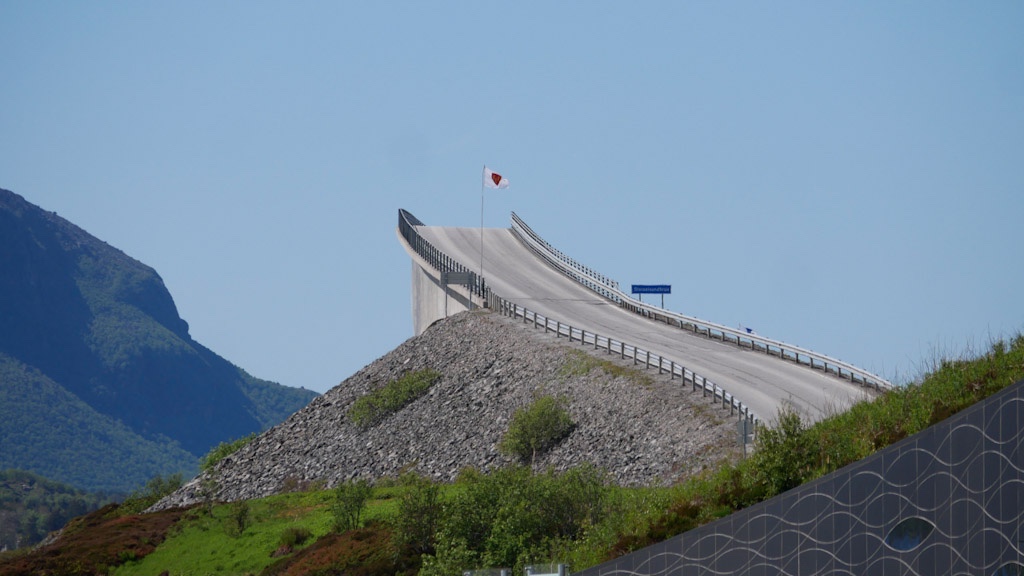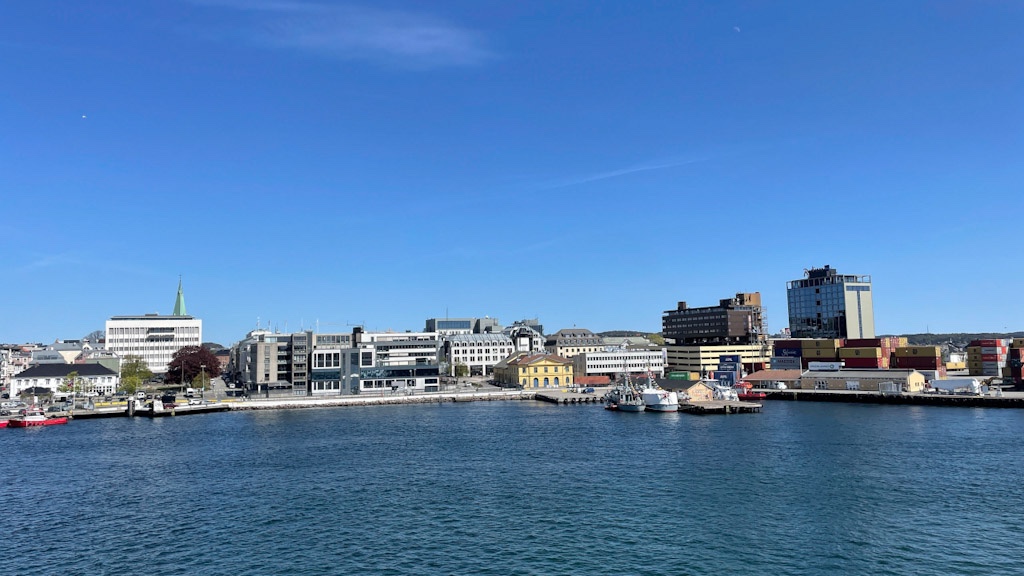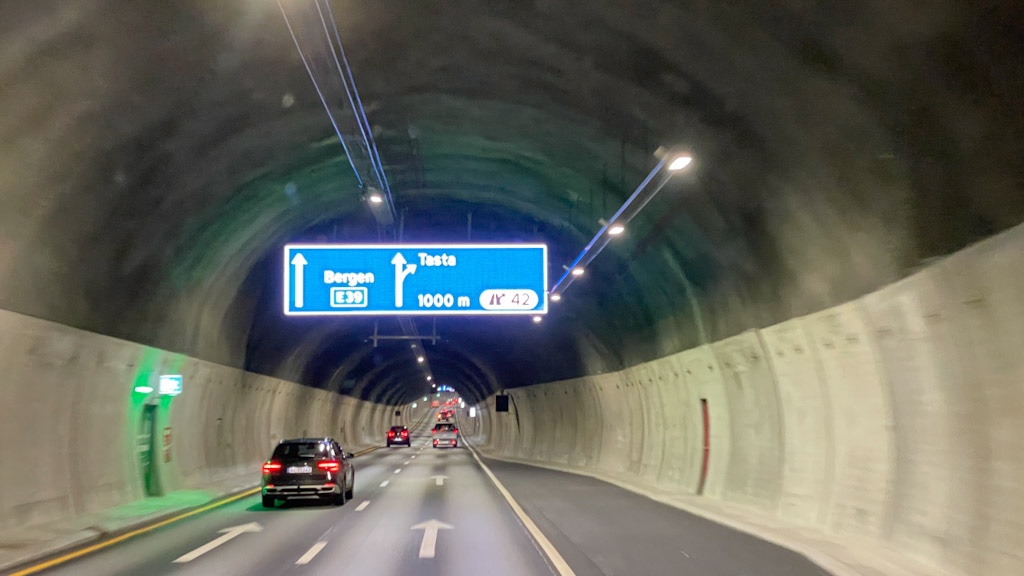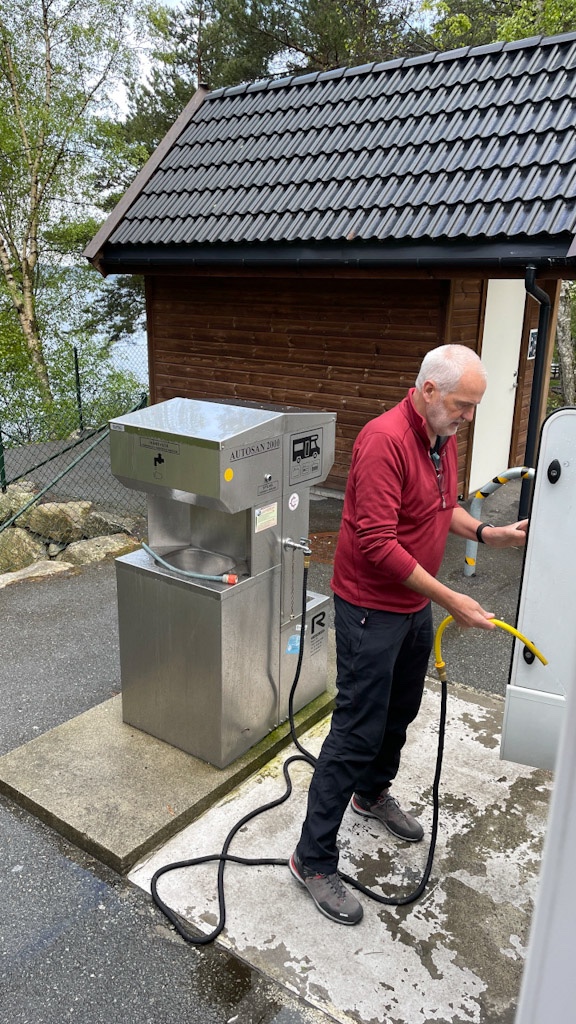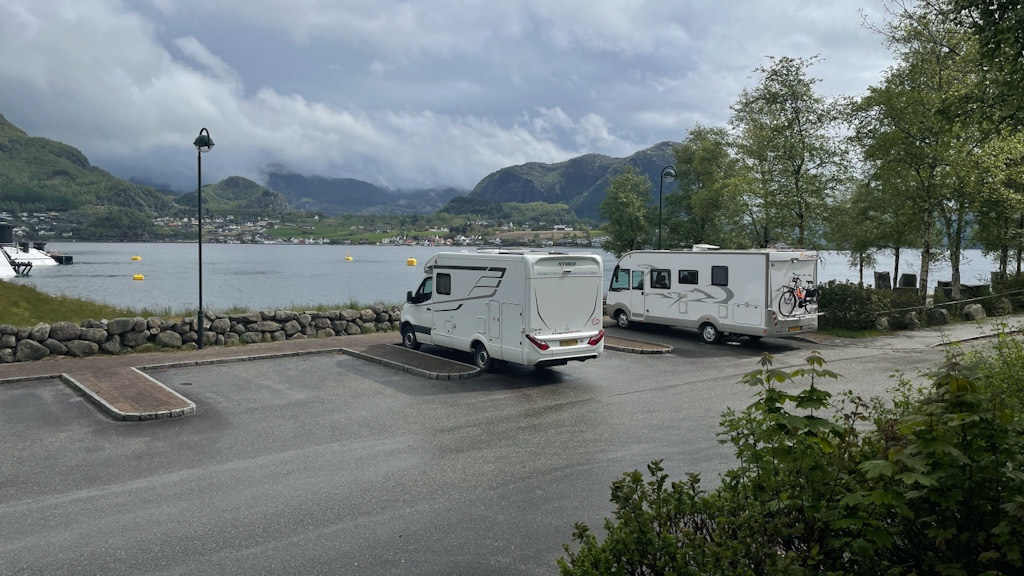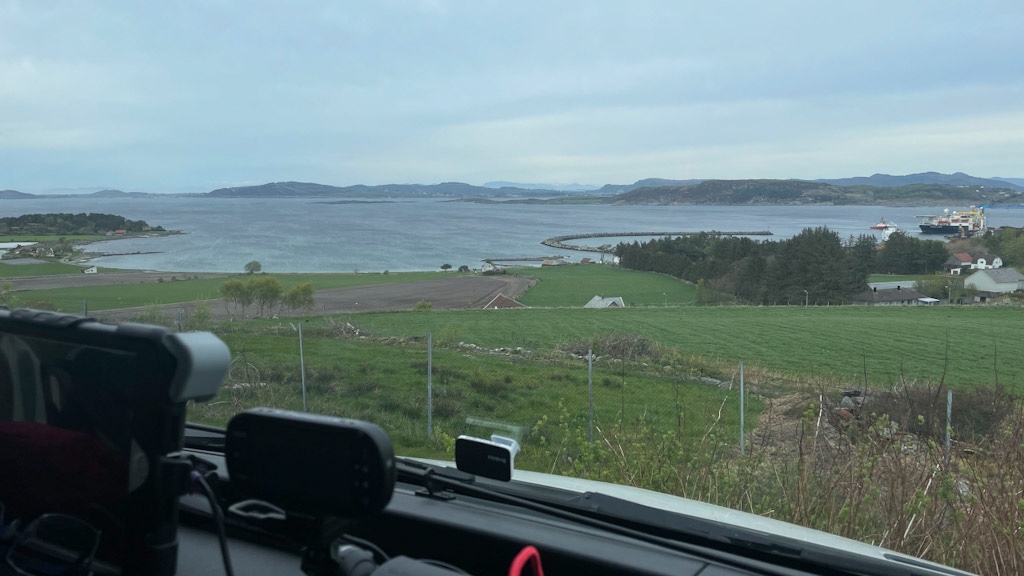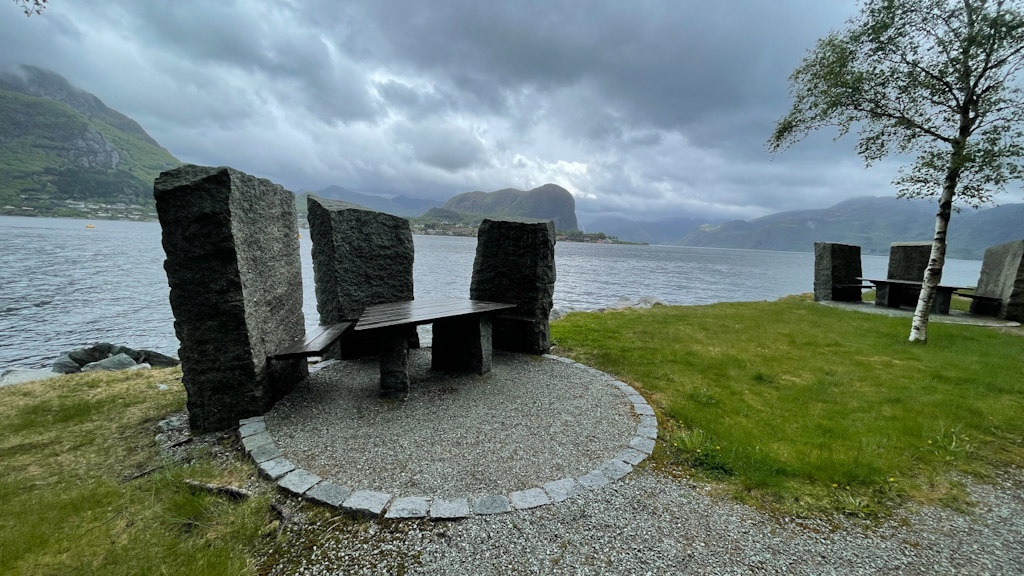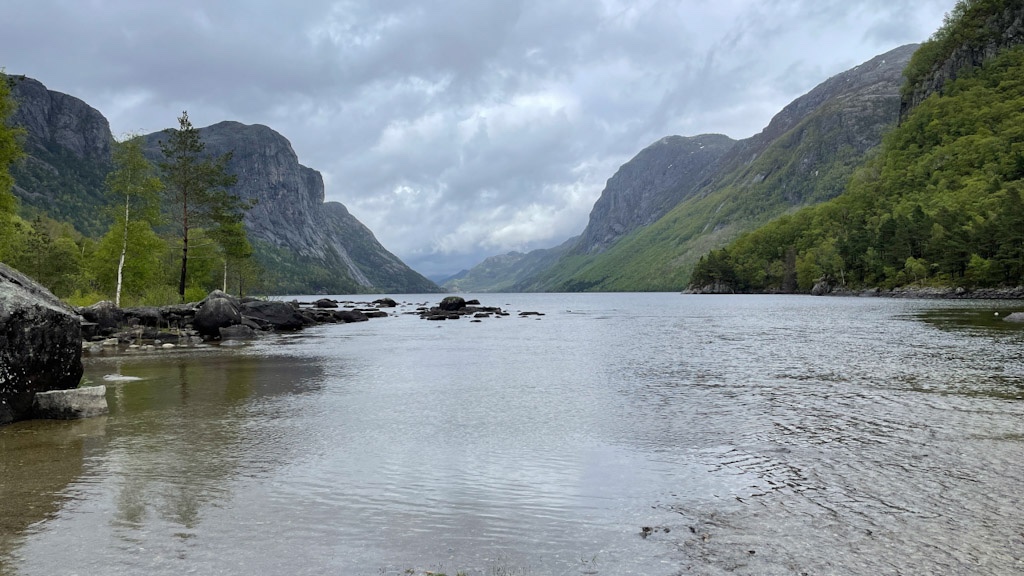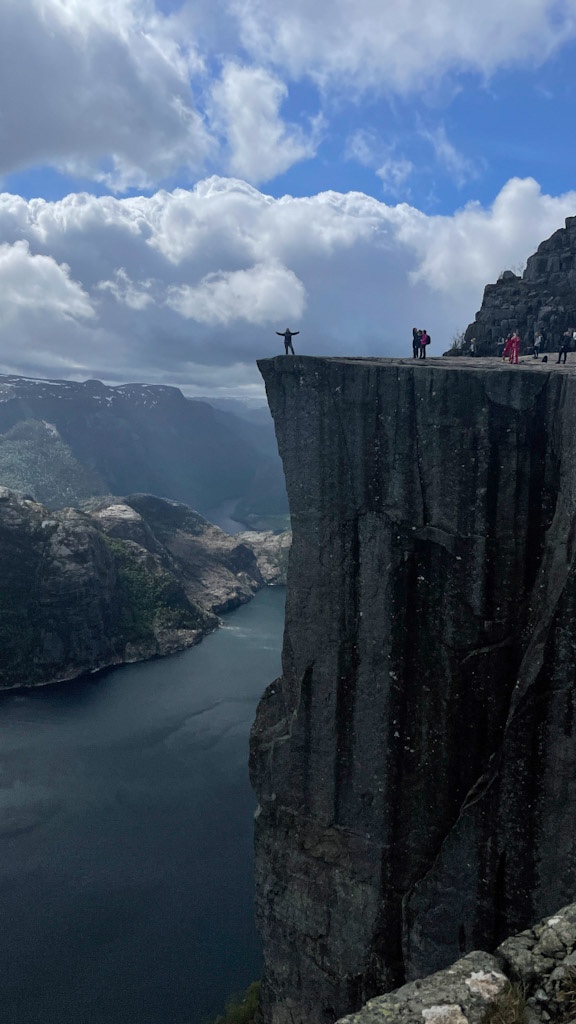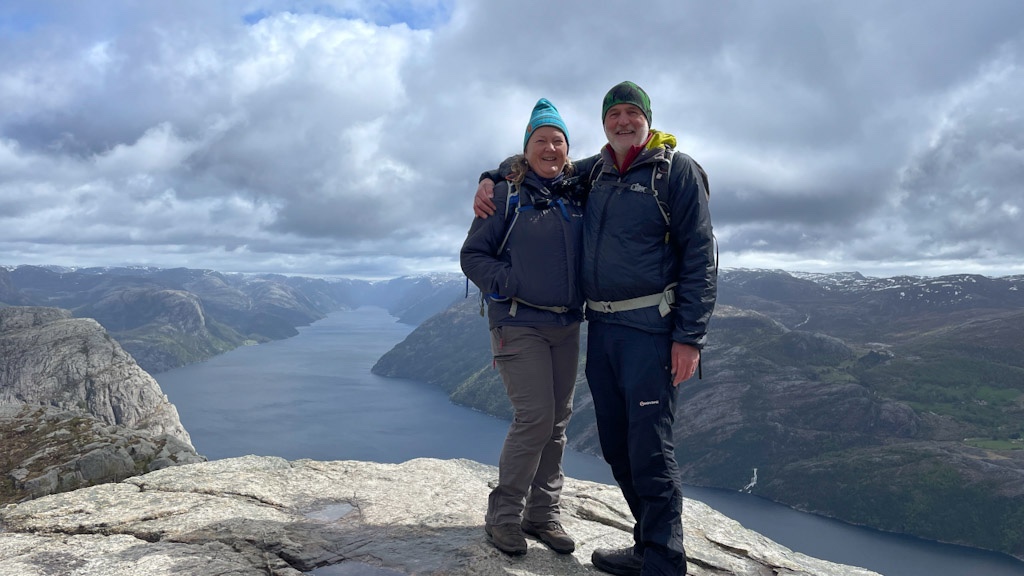
We left the campsite near Trondheim and hit the E6 north towards the Arctic Circle. We’d bought forward all our plans by a couple of days and changed our mind on using the coastal road, as a bridge further north on the E6 had been damaged essentially cutting off the north unless you took a 600km+ diversion via Sweden and Finland. We’d been told it would be a quick fix given the importance of the road (it runs all the way through the country from the Swedish border in the south to the Russian border in the far north east) but we had still had lots to do and see before meeting friends at the end of the month so didn’t want to risk any delay.
Most of this part of the trip was staying on free spots found on Park4night but we did use a couple of paid parking areas on the Lofotens (more on those later!). As we mentioned before motorhoming here is so easy with plenty of places to stop overnight and accessible, free service points.
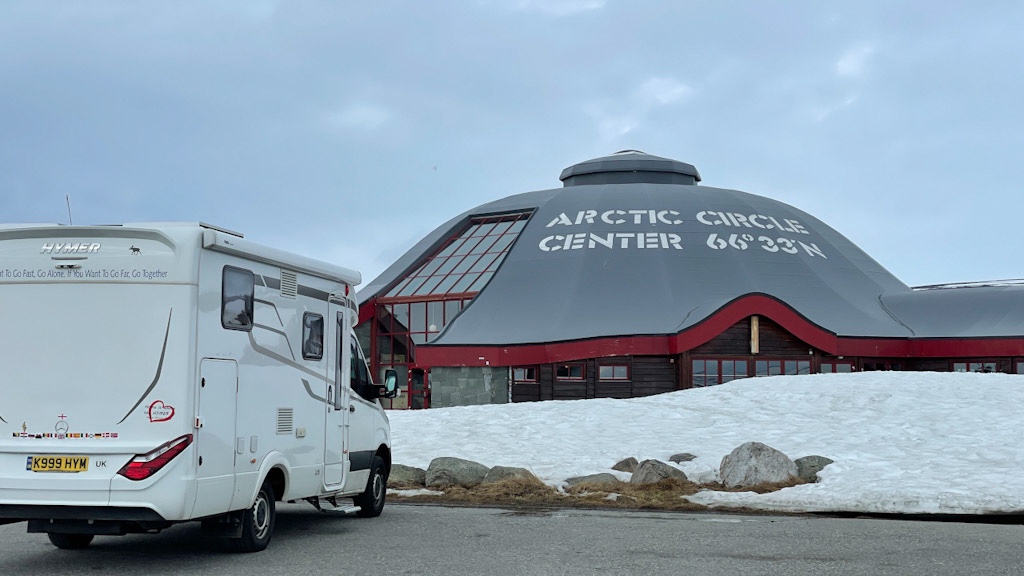
We slowly moved from the rivers and mountains of central Norway to the flat snow covered plateau at the Arctic Circle, encountering our first roadside reindeer of the trip!
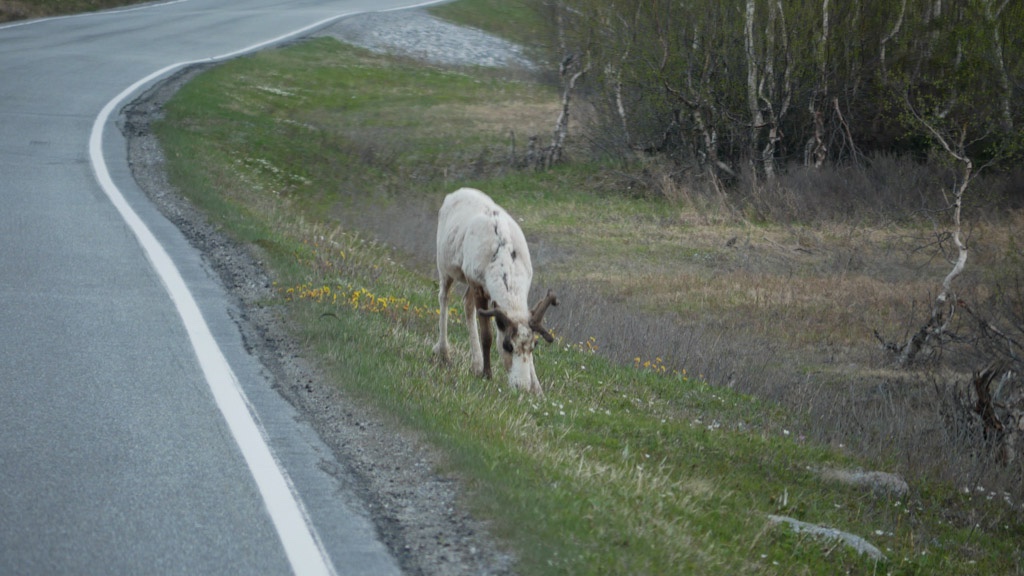
The Arctic Circle visitors centre is mostly a souvenir shop and cafe but there are a couple of war memorials on the edge of the car park. You can stay there overnight and we were close enough to be able to use the Wi-Fi so took the opportunity to update apps and back up the phones 狼.
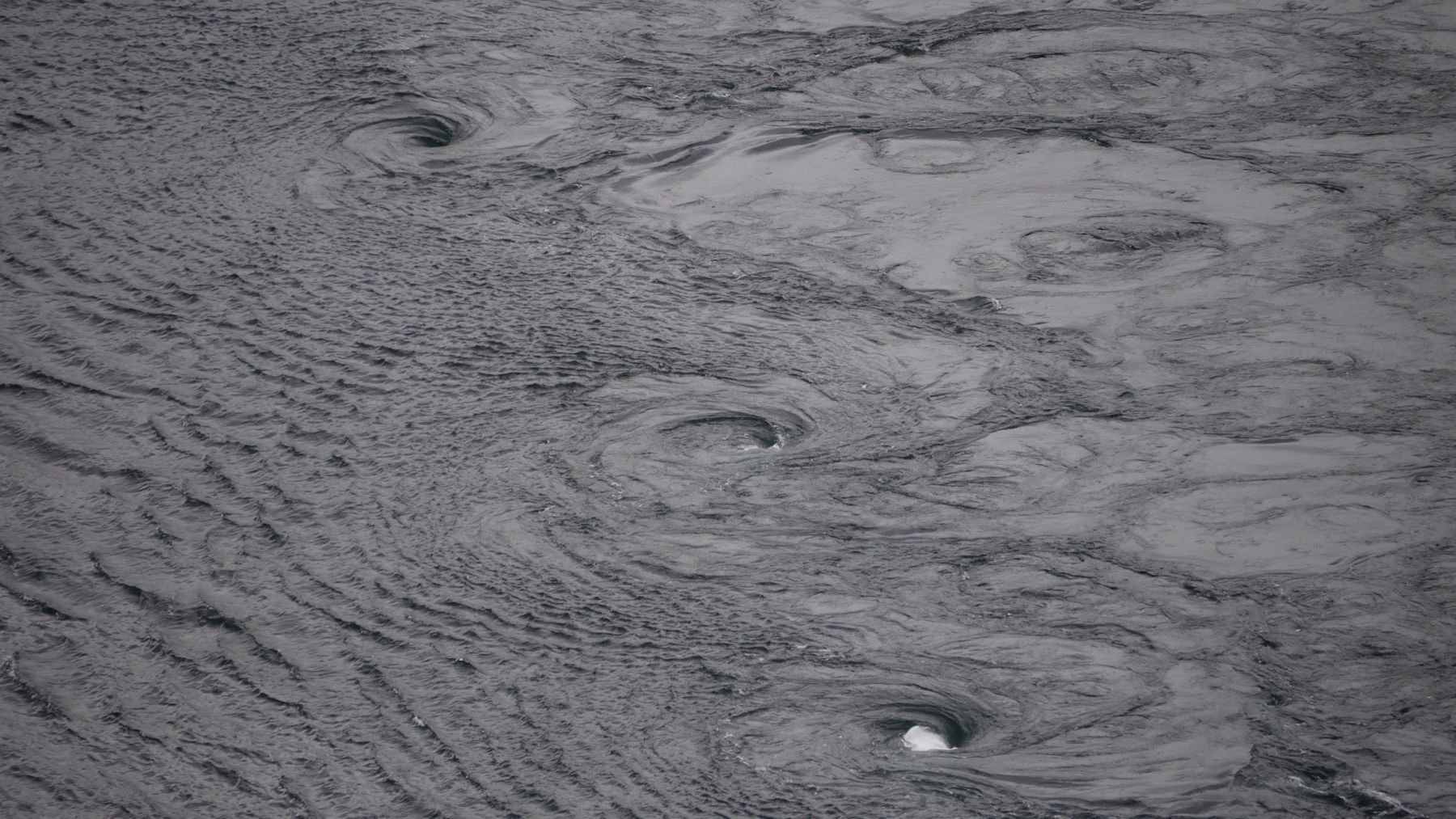
Our next stop was Bodo to take the ferry to the Lofotens. On the way we visited the Saltstraumen, one of the world’s strongest tidal-current maelstroms. The area has huge tidal variations and four times a day large amounts of water are pushed through a narrow gap to produce the eddy. This was not something to go out of your way too see but we were in the area and had timed it right for a high tide so thought why not.
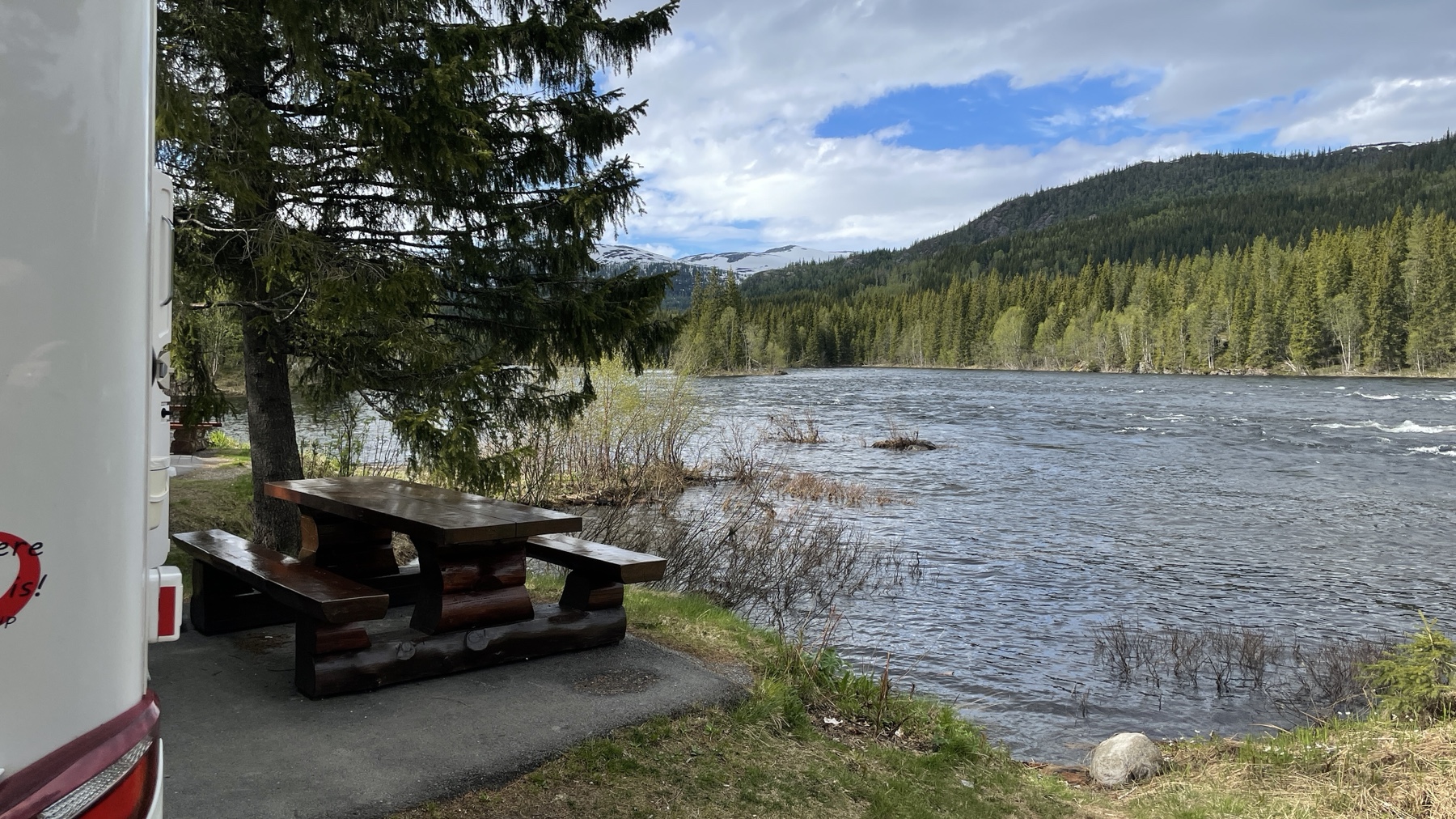
We took the 3 hour 15 min ferry from Bodo to Moskenes. We were slightly delayed in leaving due to weather but as there had been a gale warning earlier in the day, we were thankful for a calmer crossing. If you have a ferry pass you can get the crossing for almost half price (full price was approx £175) but the toll/ferry tag we had didn’t cover this ferry and you can’t get the pass once in country as it’s sent to your home address.
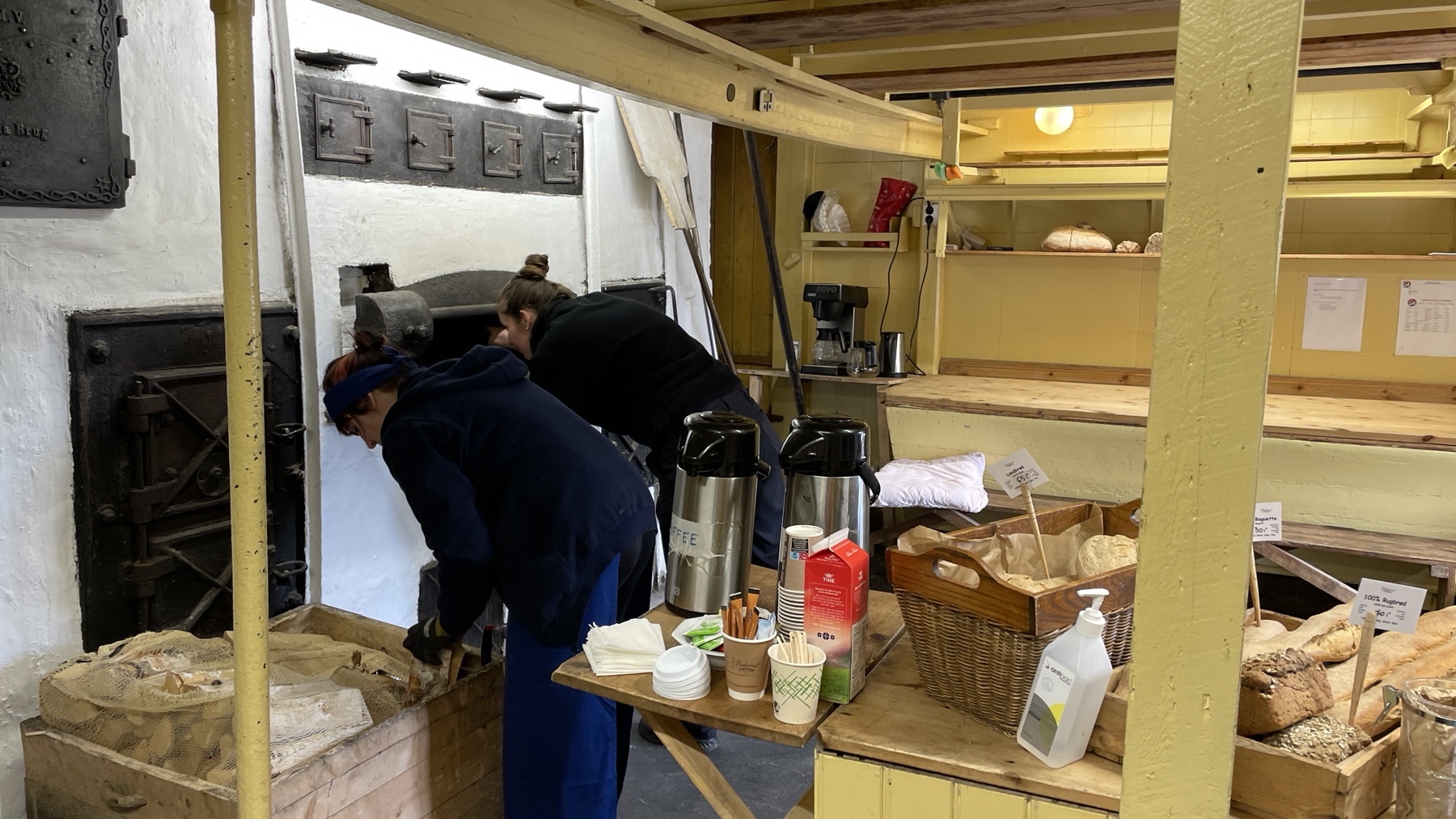
The Lofoten Islands are quite simply stunning! Sharp, high peaks against fjords and the sea, hidden beaches and an abundance of the typical Norwegian fishing villages as seen in guidebooks.
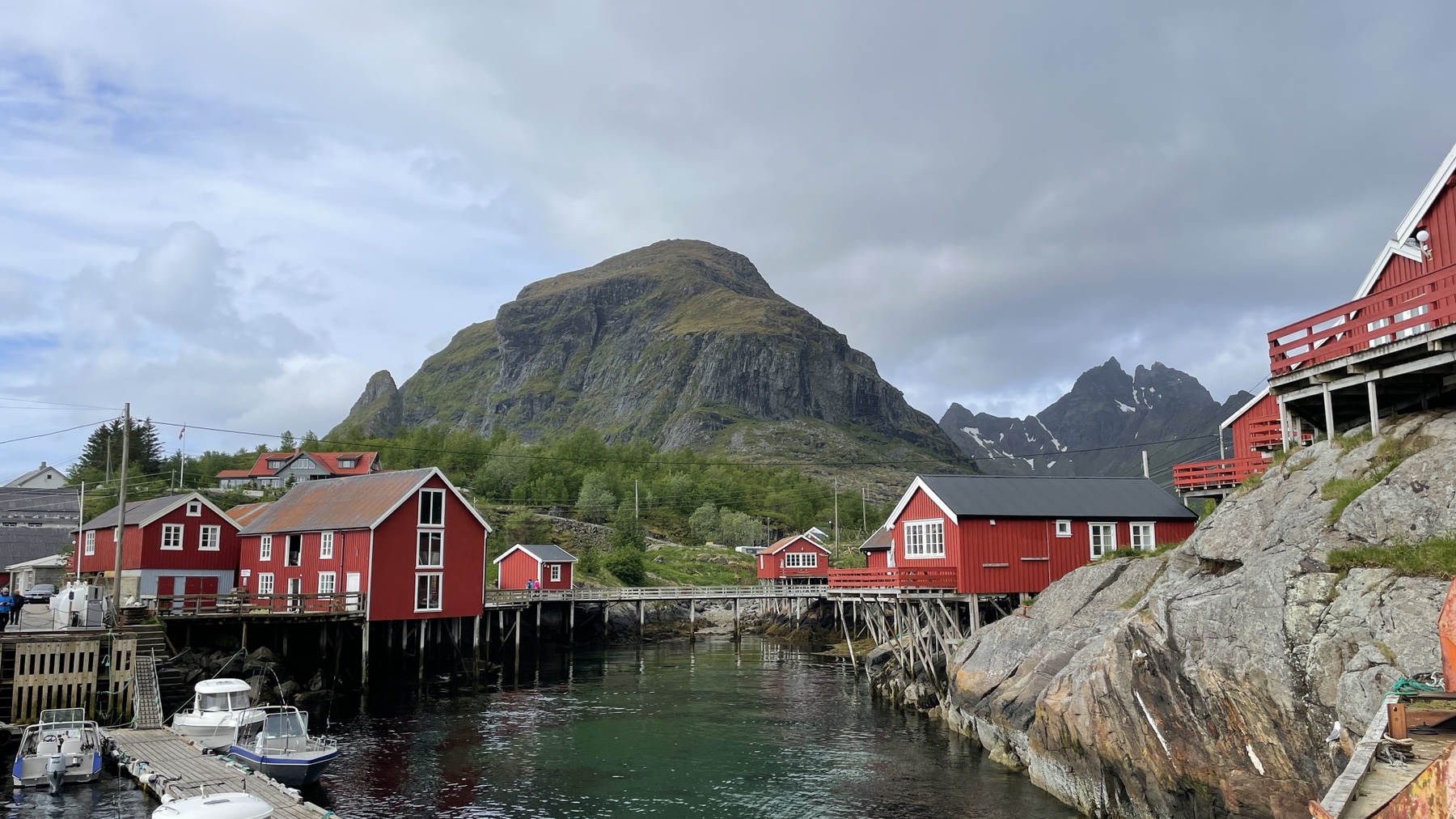
On arrival we drove the short distance to the village of A, the starting point of the E10 which runs the length of the islands back to the mainland just north of Narvik. The Gammelgarden Bakery is well worth a visit for its cinnamon buns which are baked in a vintage oven.
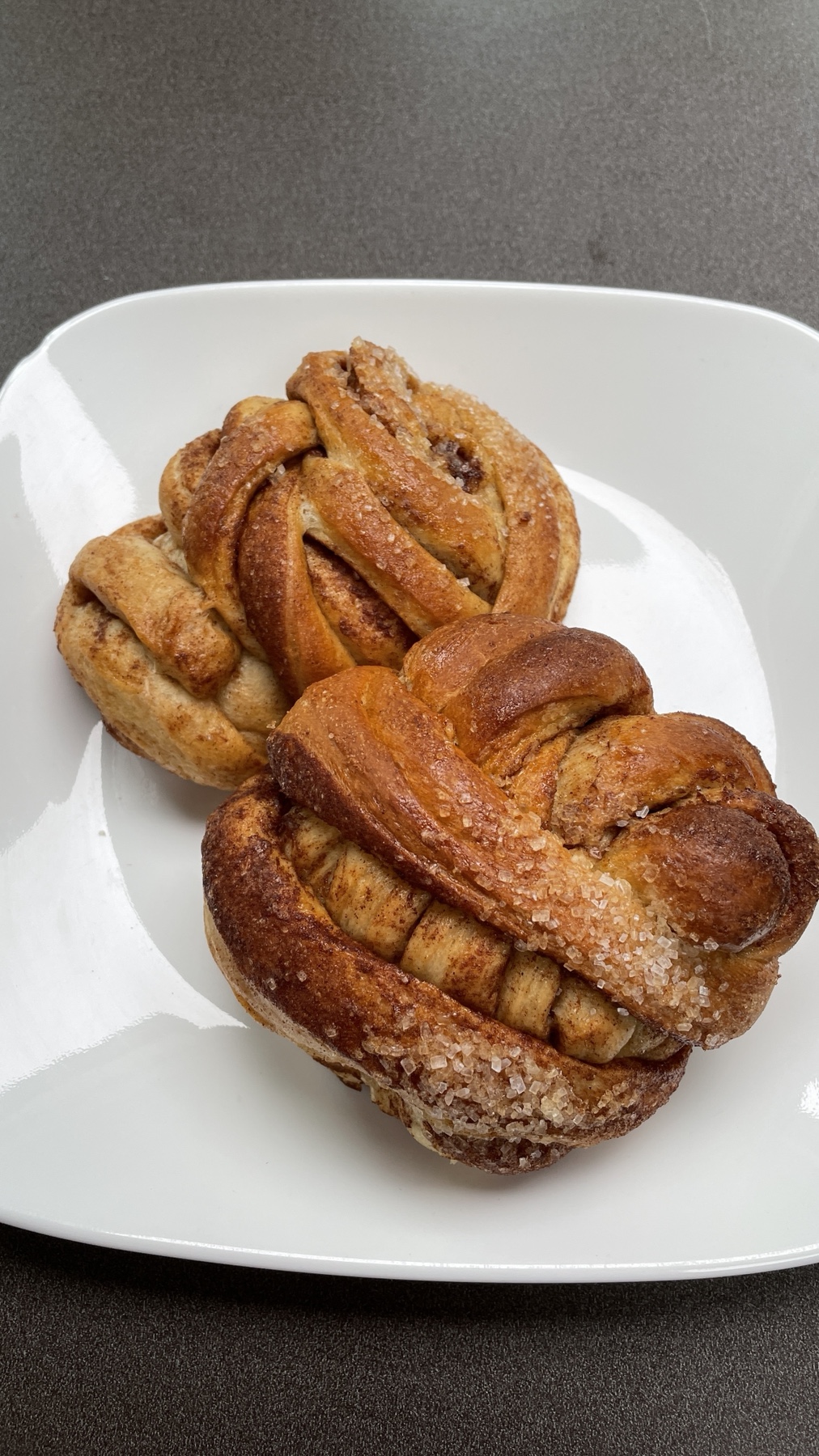
We followed the E10 through the two islands of Moskenesoya and Flakstadoya, spending two nights near Fredang, from where we hiked up the headland to see the beach at Ryten. The “campsite” is nothing more than a grass field but has toilets and a shower, is close to the beach and the hiking path. The cost was NOK100 per night (about £8) which was the same price for day parking.
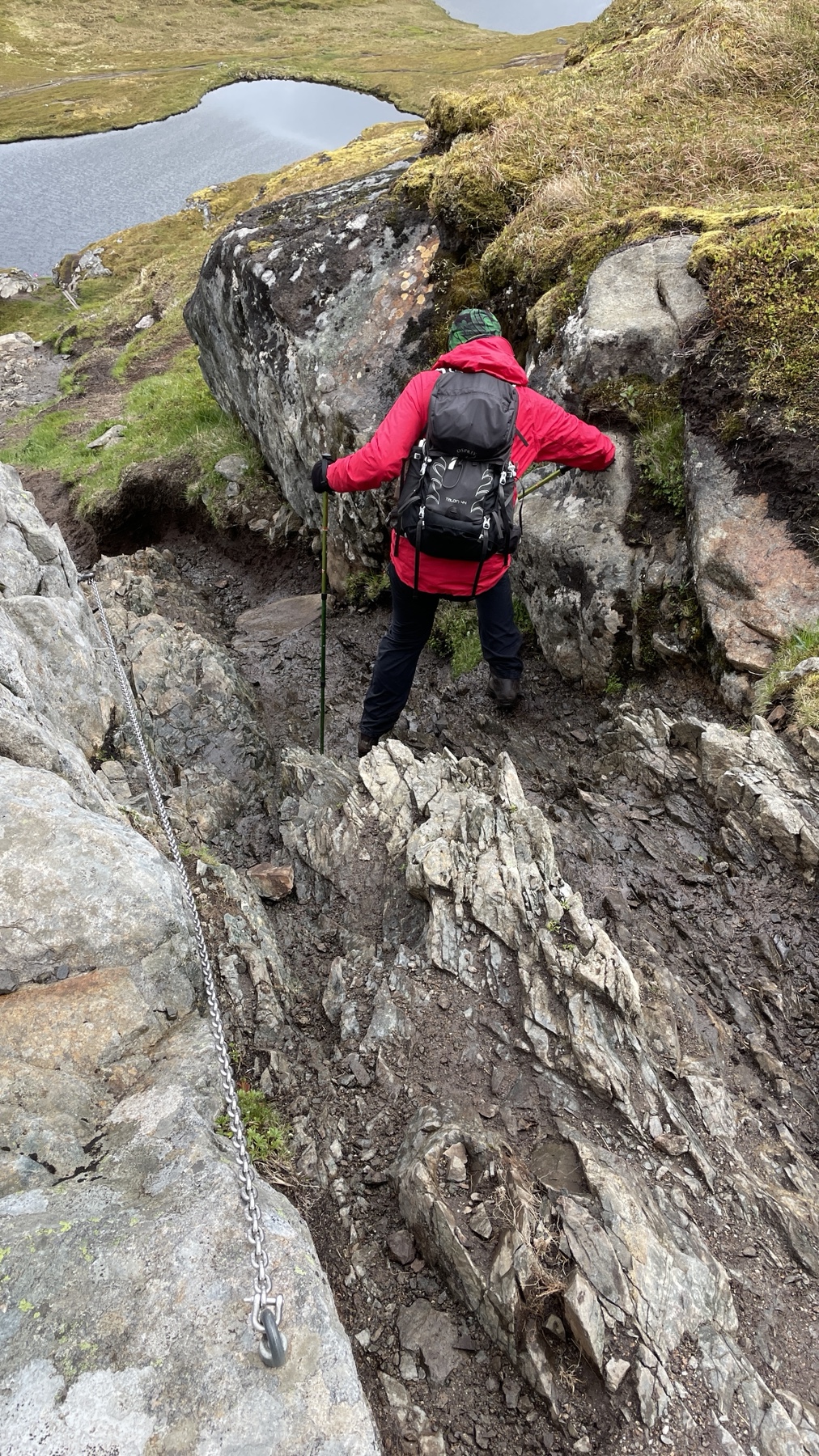
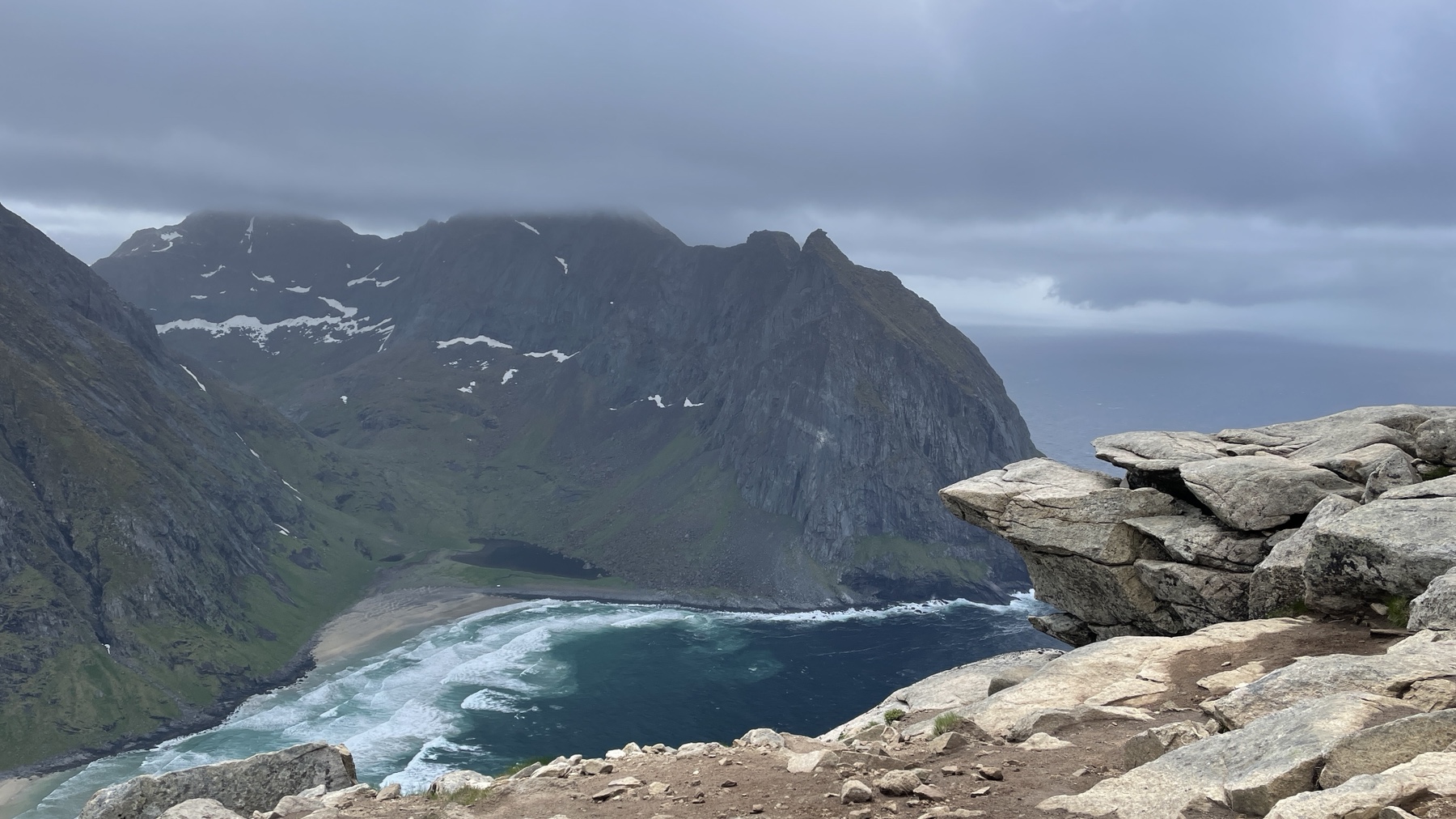
We took a detour off the E10 to the village of Laukvik where we stayed in the village aire. It’s a large quayside concrete car park but EHU is available and it has a building with showers, toilets and free, yes free, laundry facilities. It was NOK200 per night or NOK250 with EHU and one of the locals comes round to collect the money (cash or card). There’s a great little cafe in the village and a coffee roasting business, although the latter was closed when we visited and it was here that we got our first glimpse of the midnight sun. The lack of darkness is playing a little havoc with our internal clocks and we find ourselves going to bed later than usual but the blinds do a pretty good job at keeping the van dark.
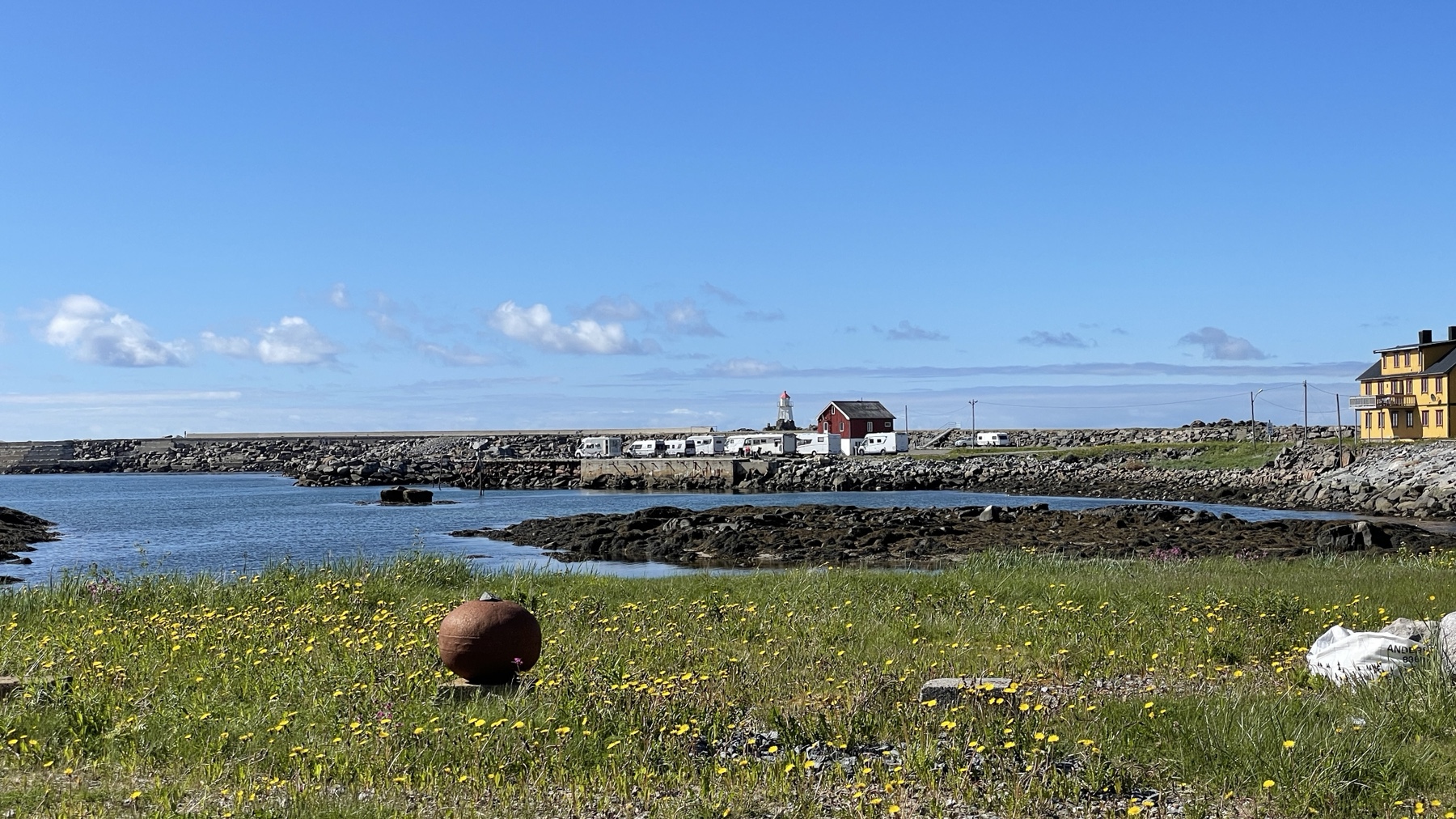
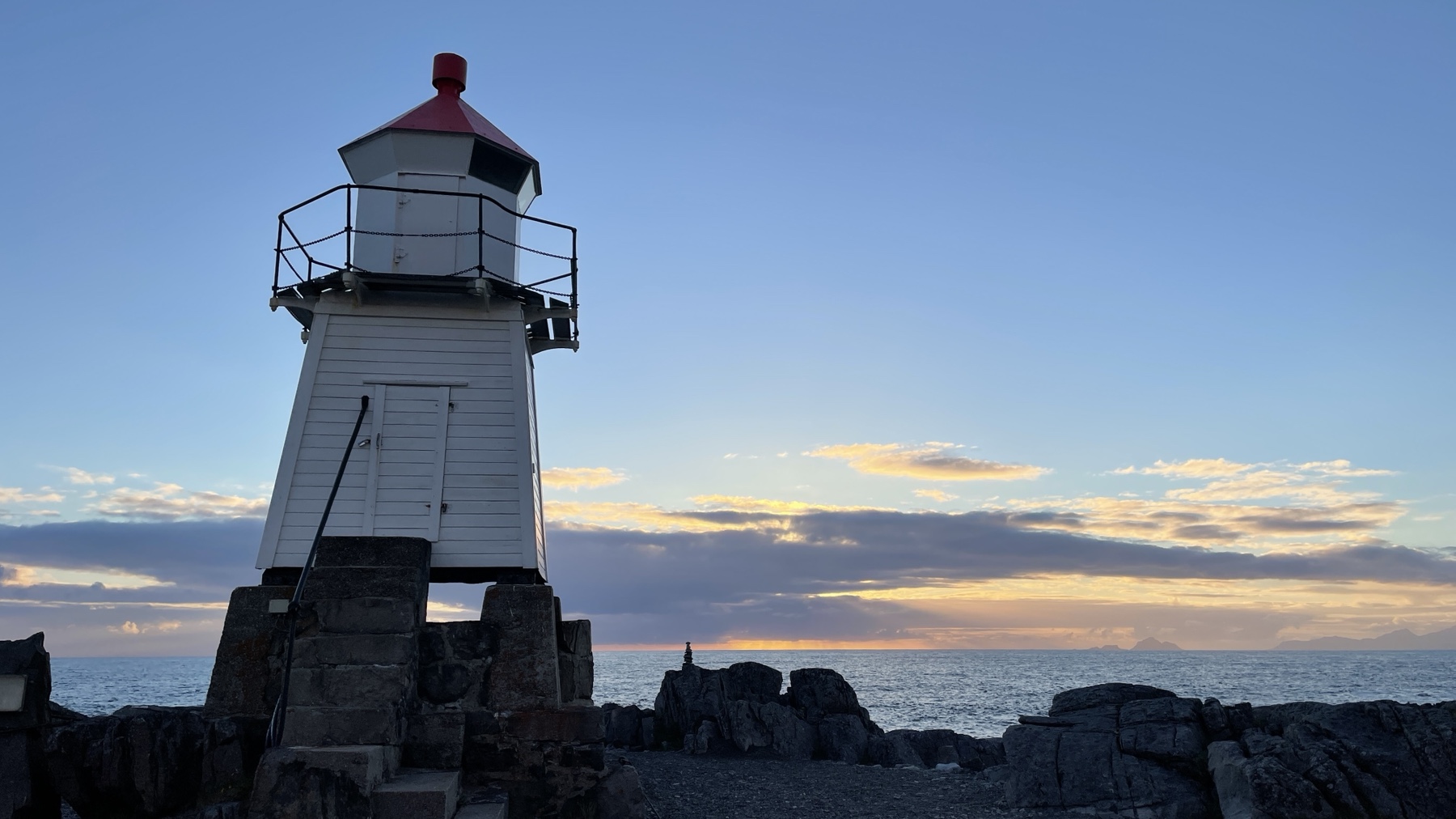
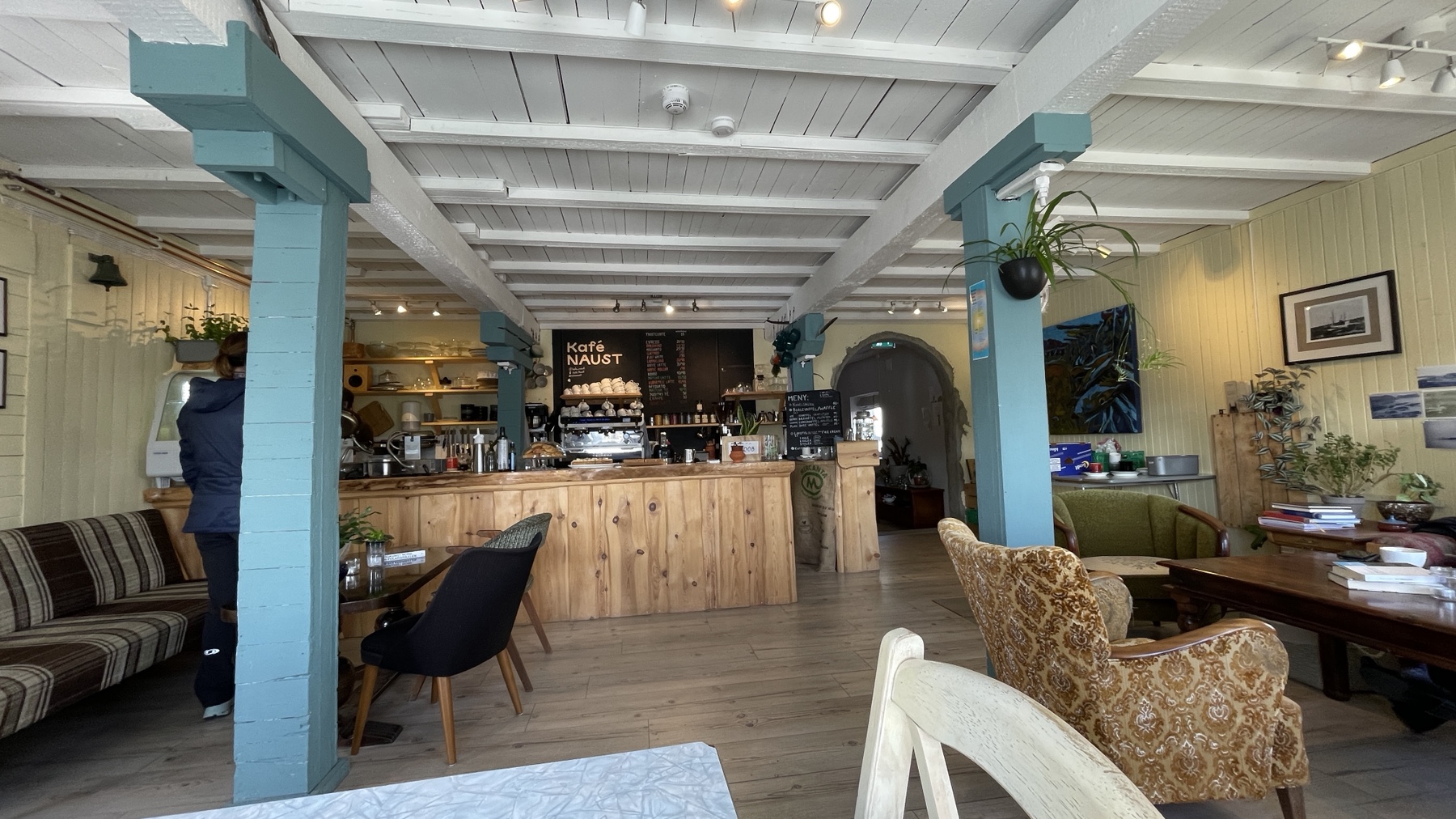
Our last night on the Lofotens was in a remote park up near Fauskevag, south of Harstad, where we really got to see the midnight sun.
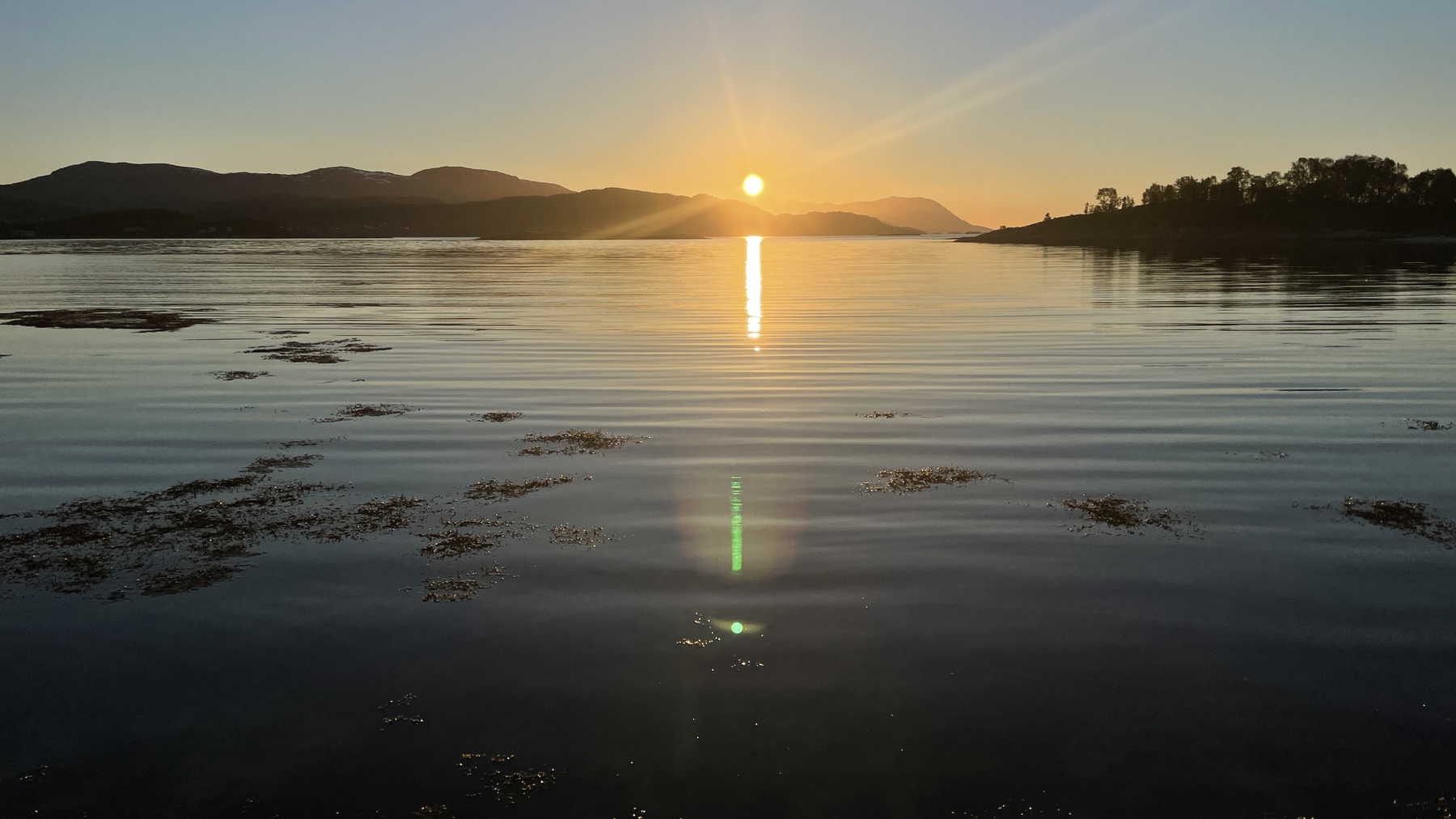
From here it was back on to the E6 on our way to Nordkapp. We found another amazing park up near Talvik where June got to dip in the sea, and yes we are still above the Arctic Circle.
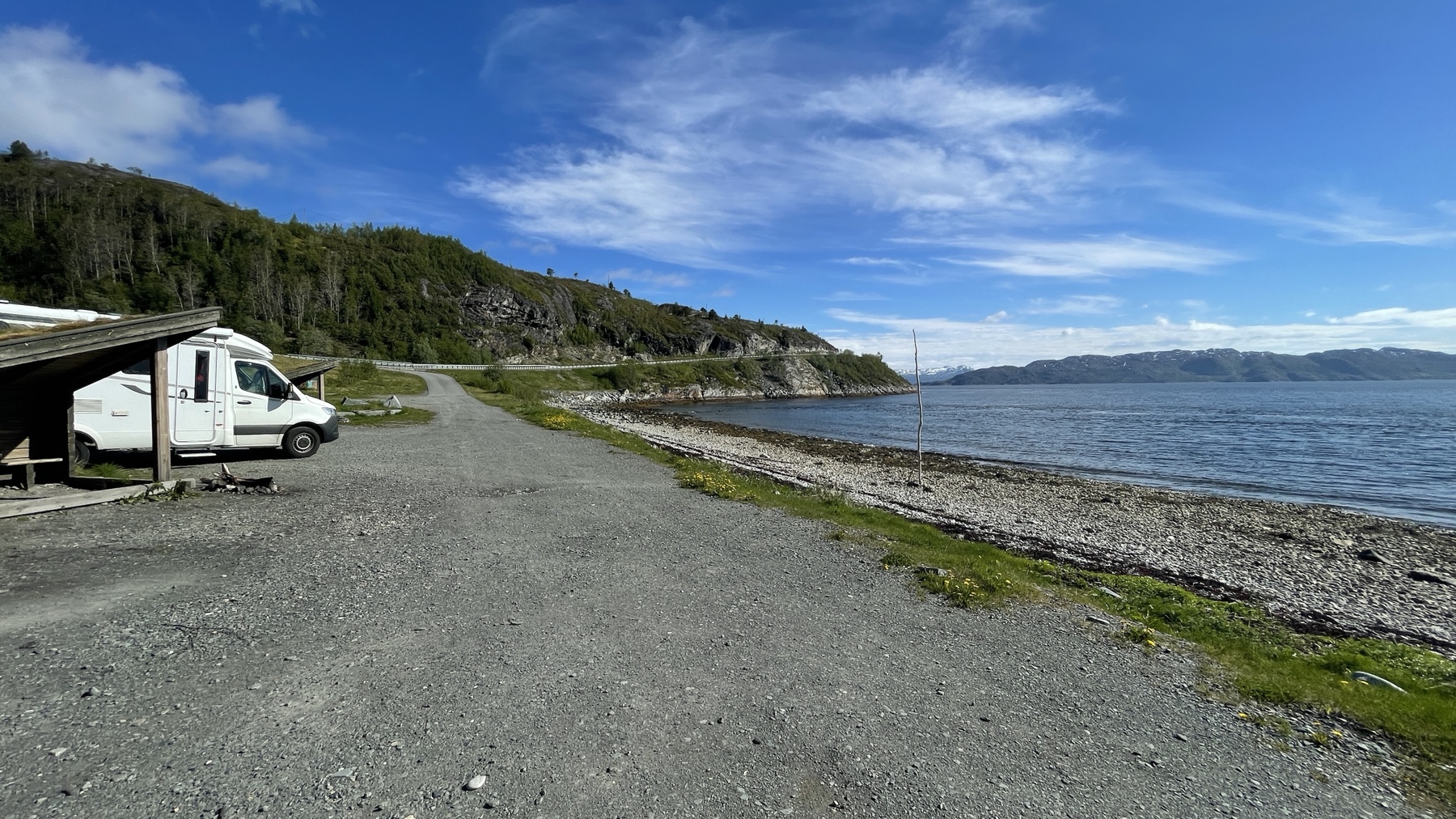
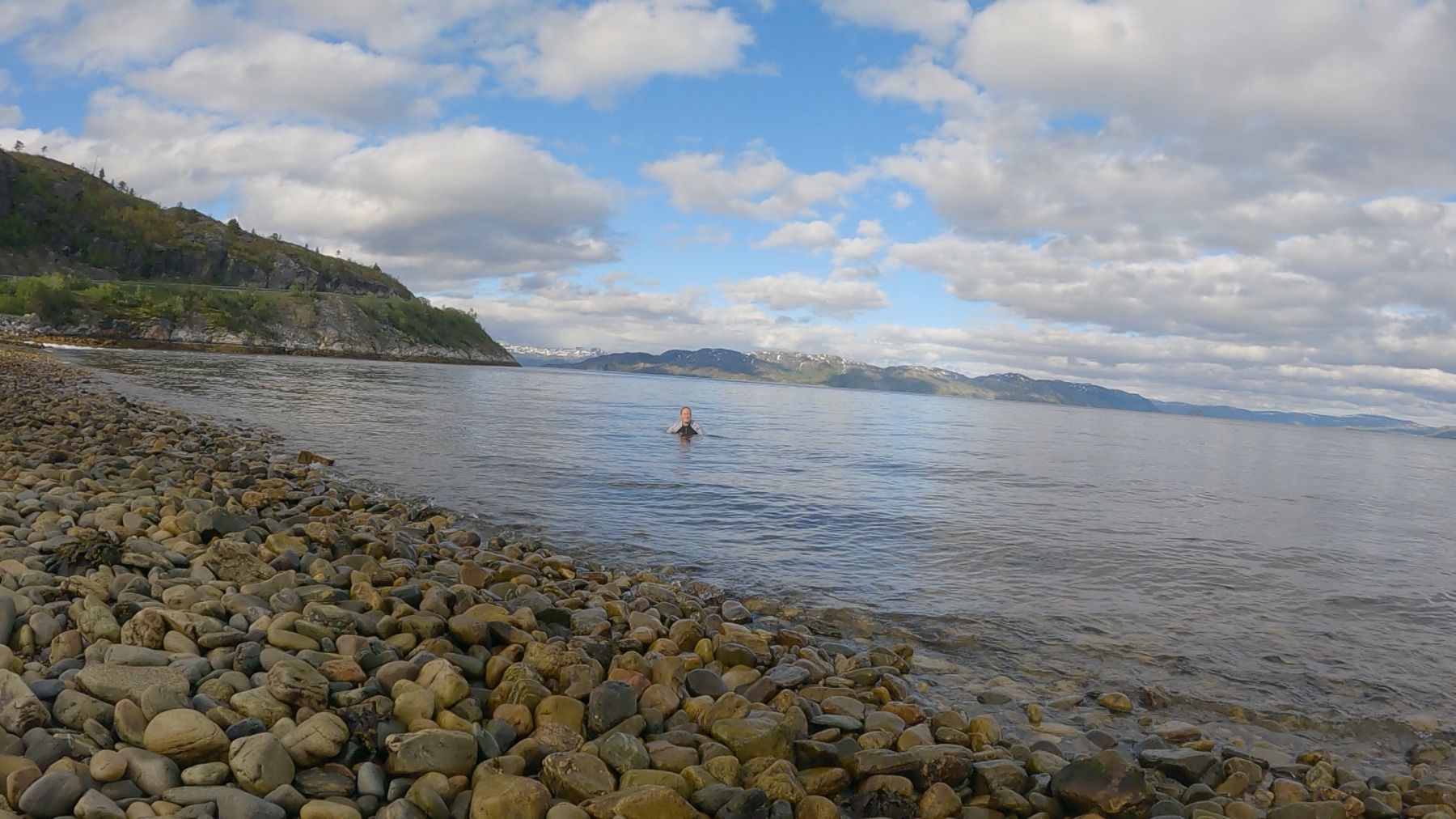
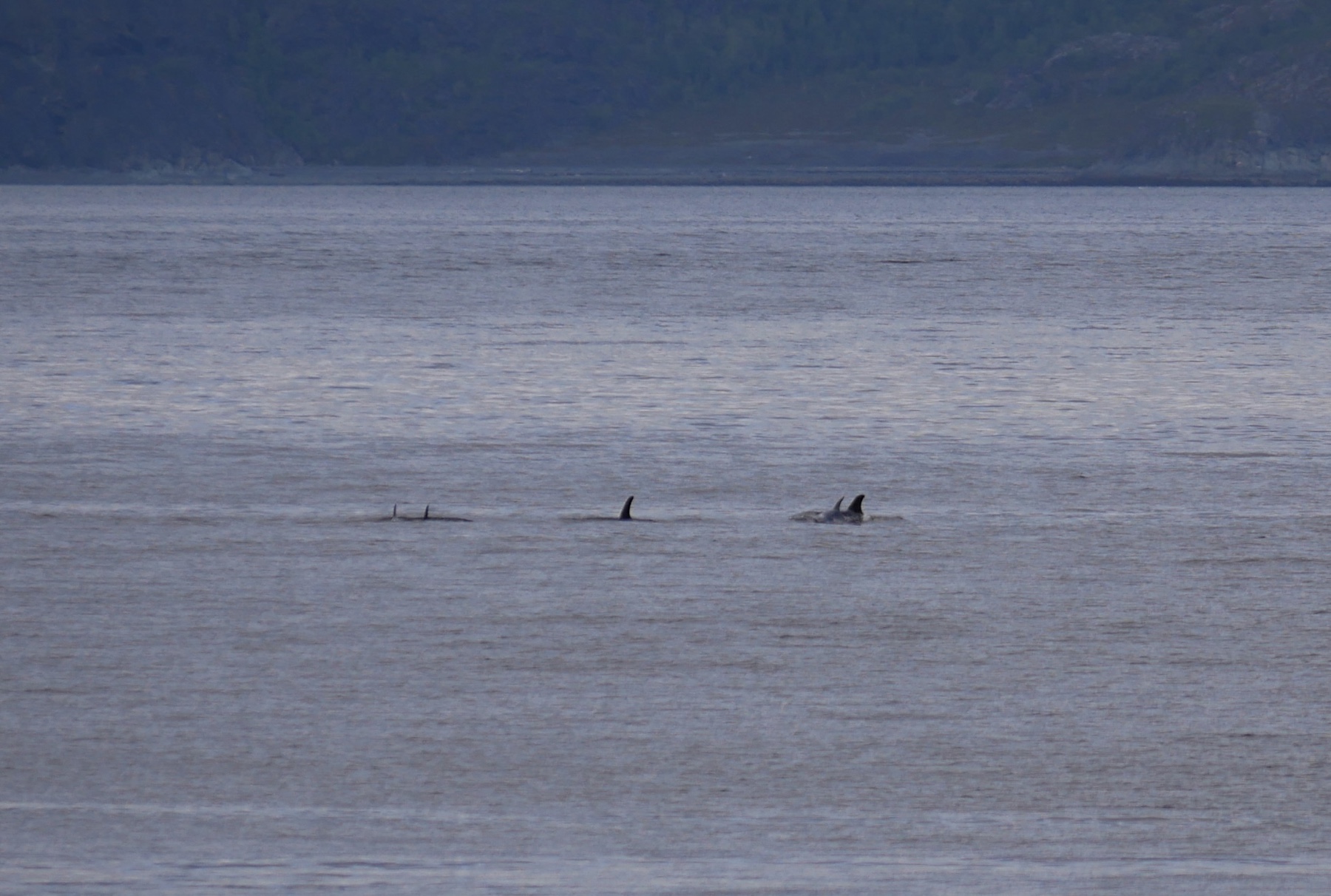
The next stop was the most northerly point of Norway that you can drive to at Nordkapp. The E69 is a long windy road that takes from Olderfjord to Nordkapp, via coastal cliffs, open plateaus, deep tunnels (the Nordkapptunnel reaches a depth of 212m below sea level) and sees a never ending flow of motorhomes, motorcycles and a surprising number of people on good old fashioned pushbikes!
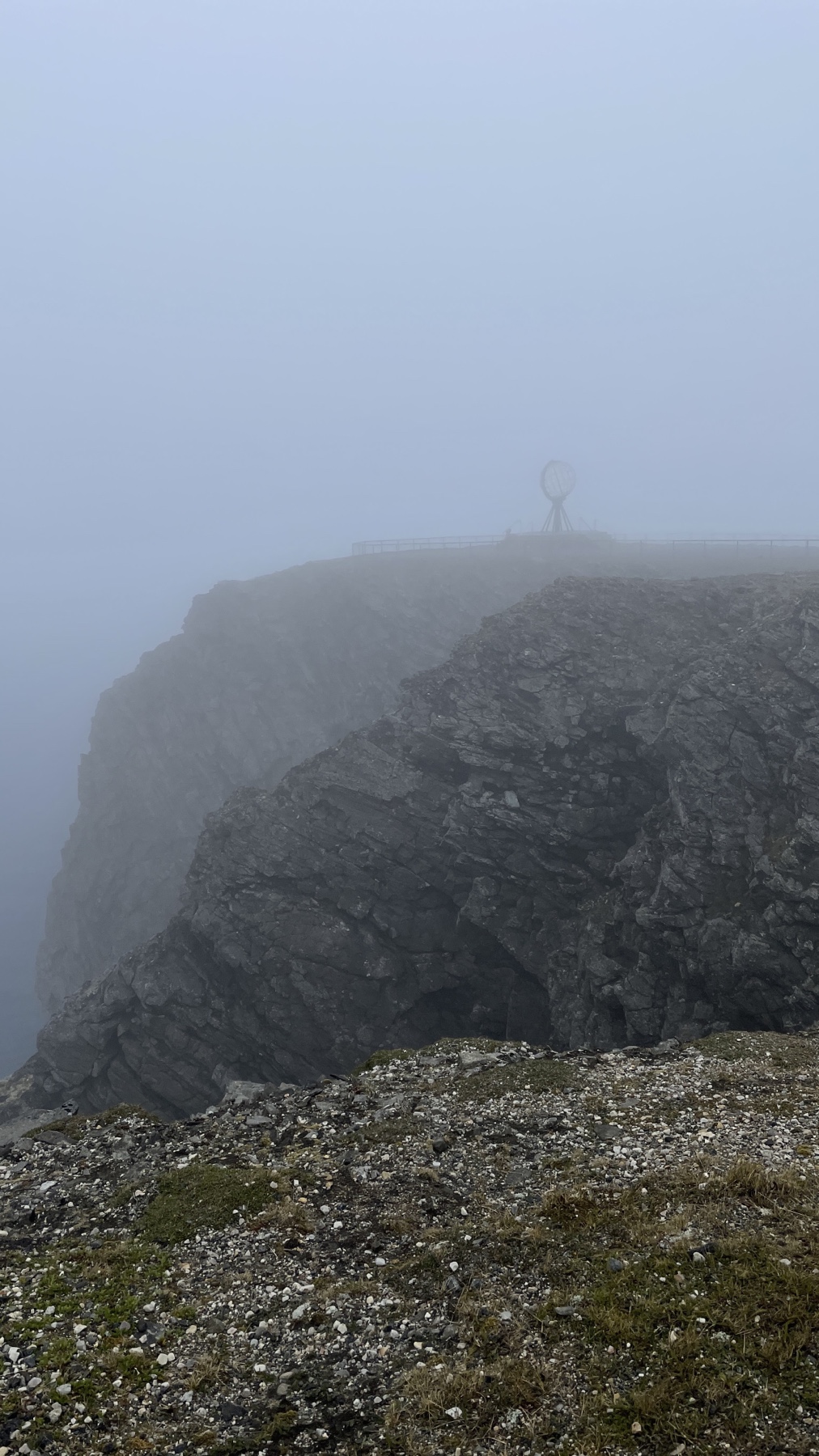
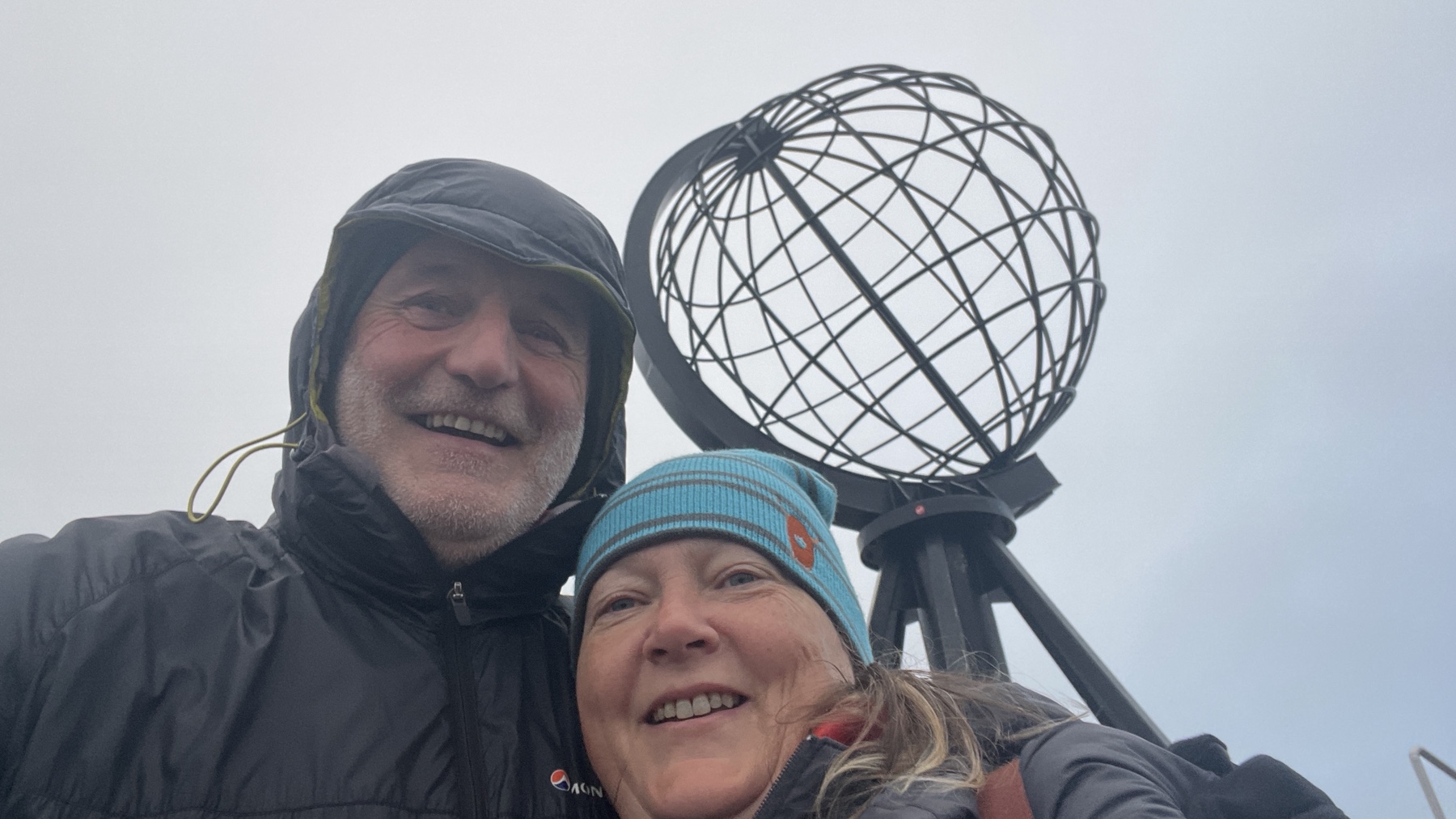
At the end of the road is the visitor centre where parking is free but you are supposed to pay NOK310 (£25) each to enter, even just to go to the cafe and souvenir shop. We had the misfortune to arrive at the same time as coach loads of visitors from a cruise ship that we had passed moored in the nearby town of Honningsvag. On the upside this meant we could sneak into the centre with the masses unnoticed, grab our sticker and use the Wi-Fi unnoticed! The coaches just kept coming with the last one leaving around midnight but the place was empty in the morning meaning we could take our photos uninterrupted.
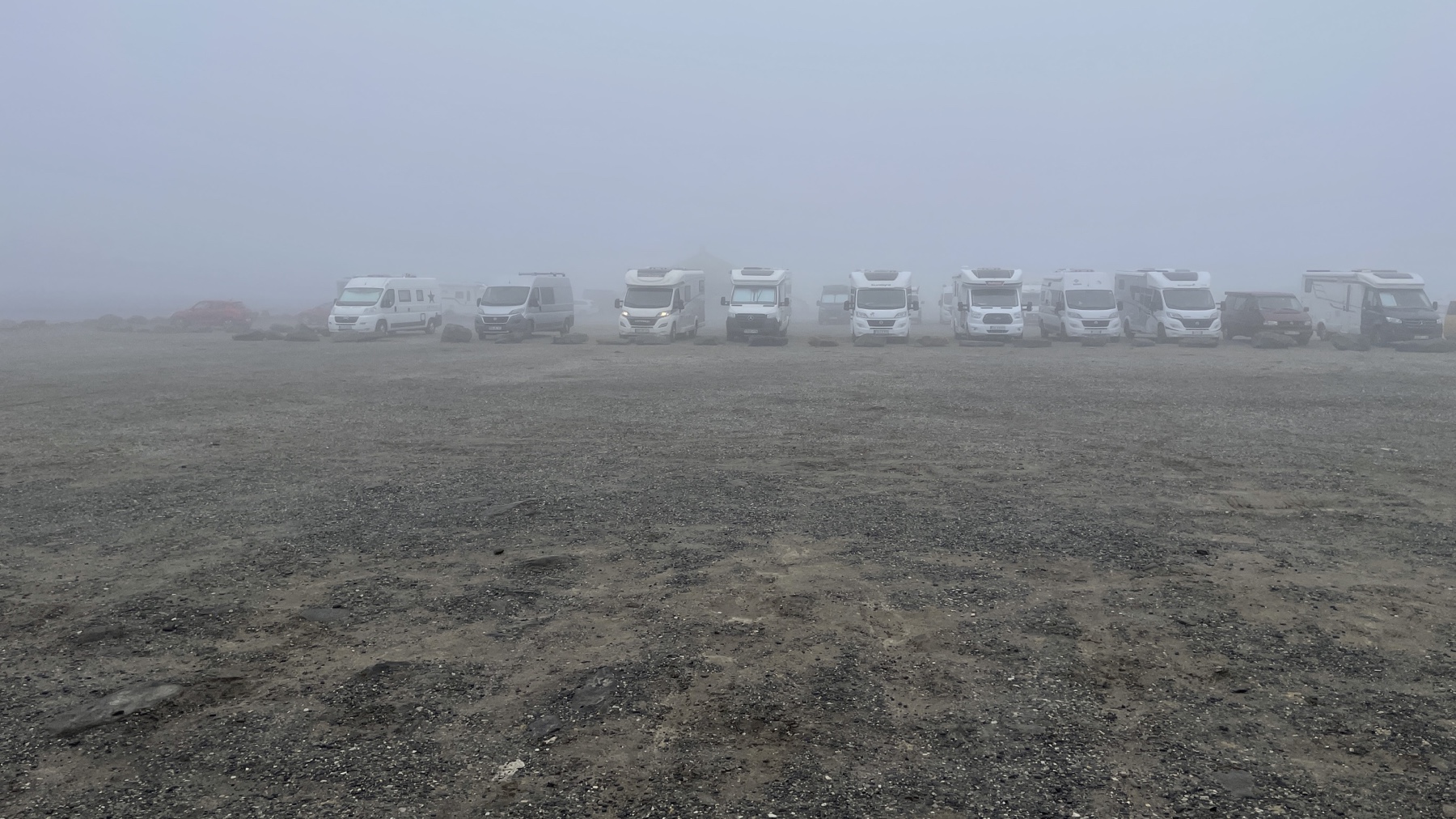
We took a slight detour on the way back via Hammerfest just because June liked the name! We found it difficult to park in the centre due to roadworks and the fact that the cruise ship was now here, so no visit to the Isbjornklubben, aka the Royal and Ancient Polar Bear Society where you can become a lifetime member for a small fee. For an additional fee you can enjoy the dubious experience of being “knighted” with the penis bone of a walrus! Apparently it’s all very tongue in cheek. We did manage to park briefly by the Struve Geodetic Arc, one of a series of points stretching from here to the Black Sea in Hungary built as part of an experiment in the early 19th century to measure the shape and size of the Earth and determine the flattening of the planet at the poles.
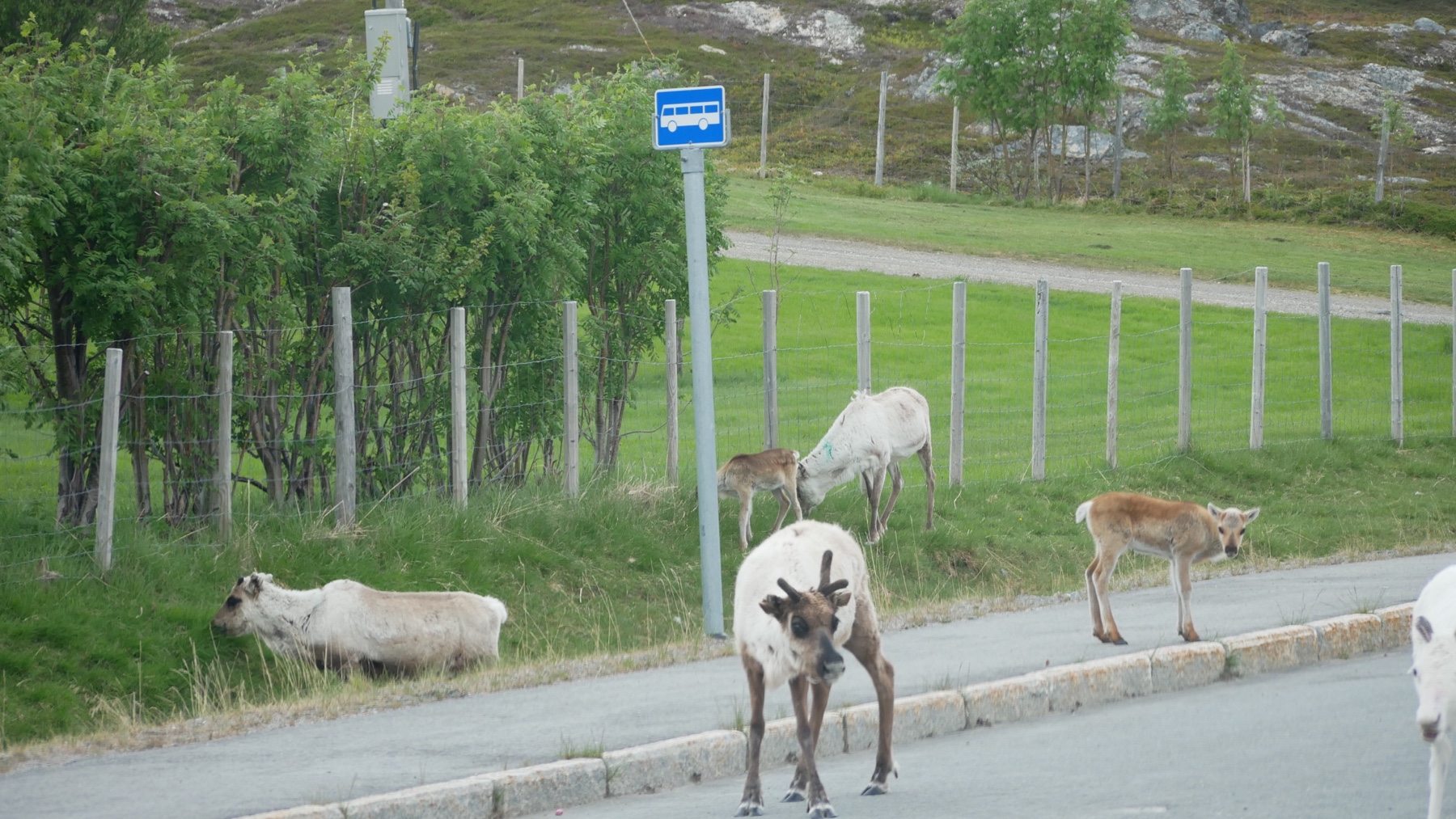
These few days were mostly driving and from Hammerfest we headed across the north eastern region of Norway, as far as we could go to the Russian border. We spent a couple of nights at Grense Jakobselv on the Barents Sea, well worth the 50km of bumping down a road which in some places was tarmac but other places gravel and potholes. This was just another site we found on Park4night and there were a few other vans there, plus on both nights two different cyclists with tents. The site has toilets, a hut and fire pit with a ready supply of chopped wood and we spent the evenings chatting and drinking round the fire. We didn’t always understand each other – we were a mix of German, French and us Brits, but we understood enough. The Norwegian army patrol the area regularly but despite the guns, were very friendly and chatty. Sadly we didn’t get to see whales which are often seen in the area but we had seen some dolphins on our way here.
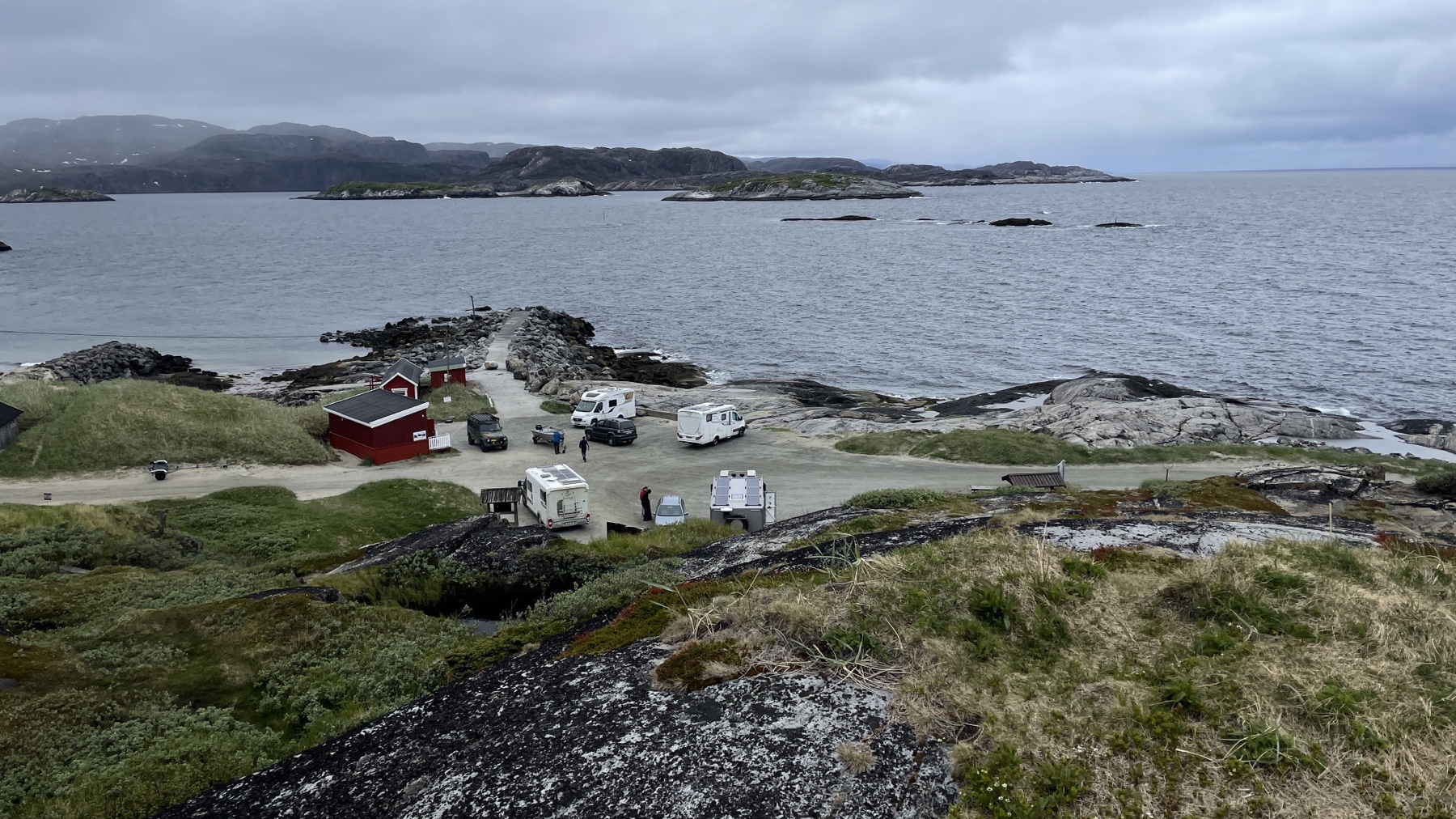
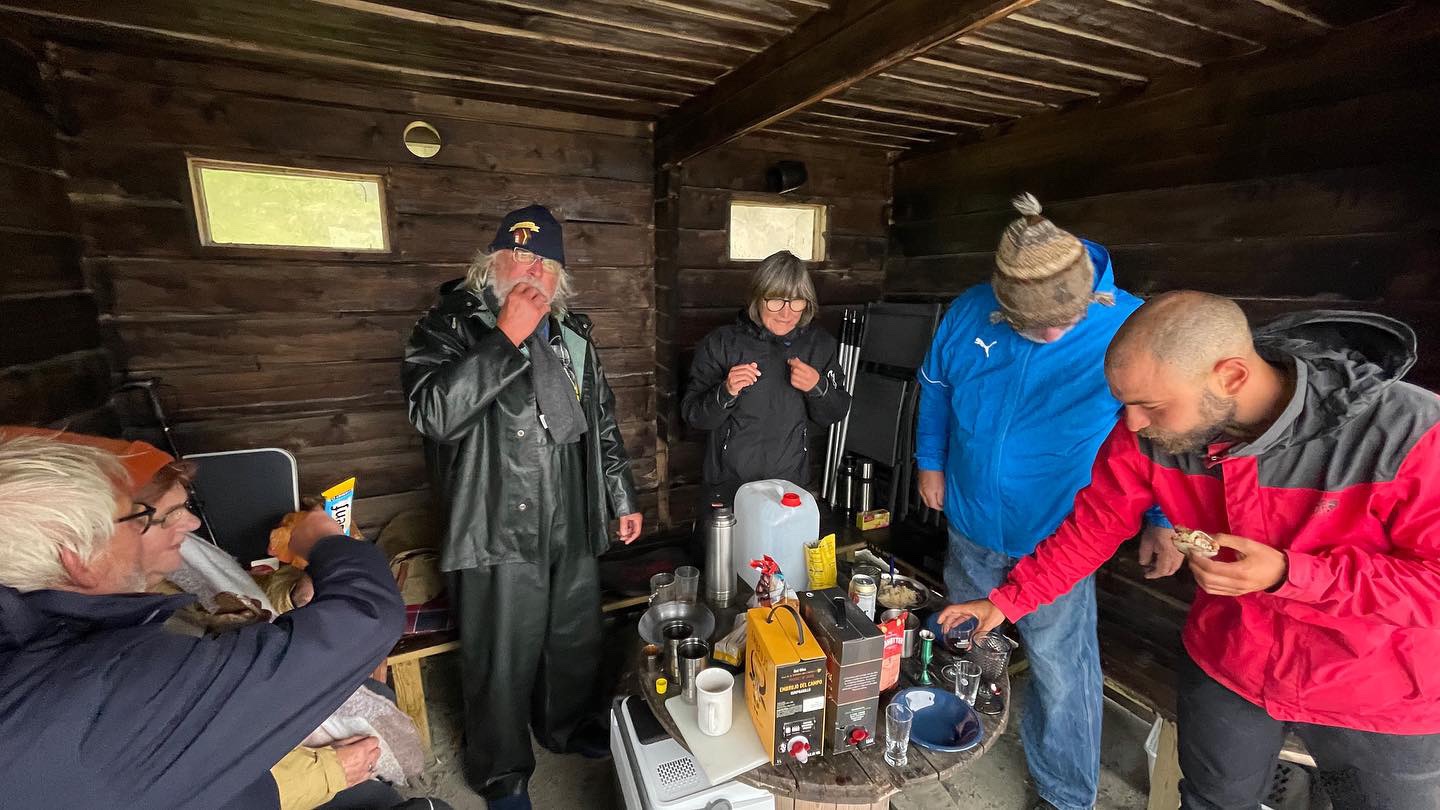
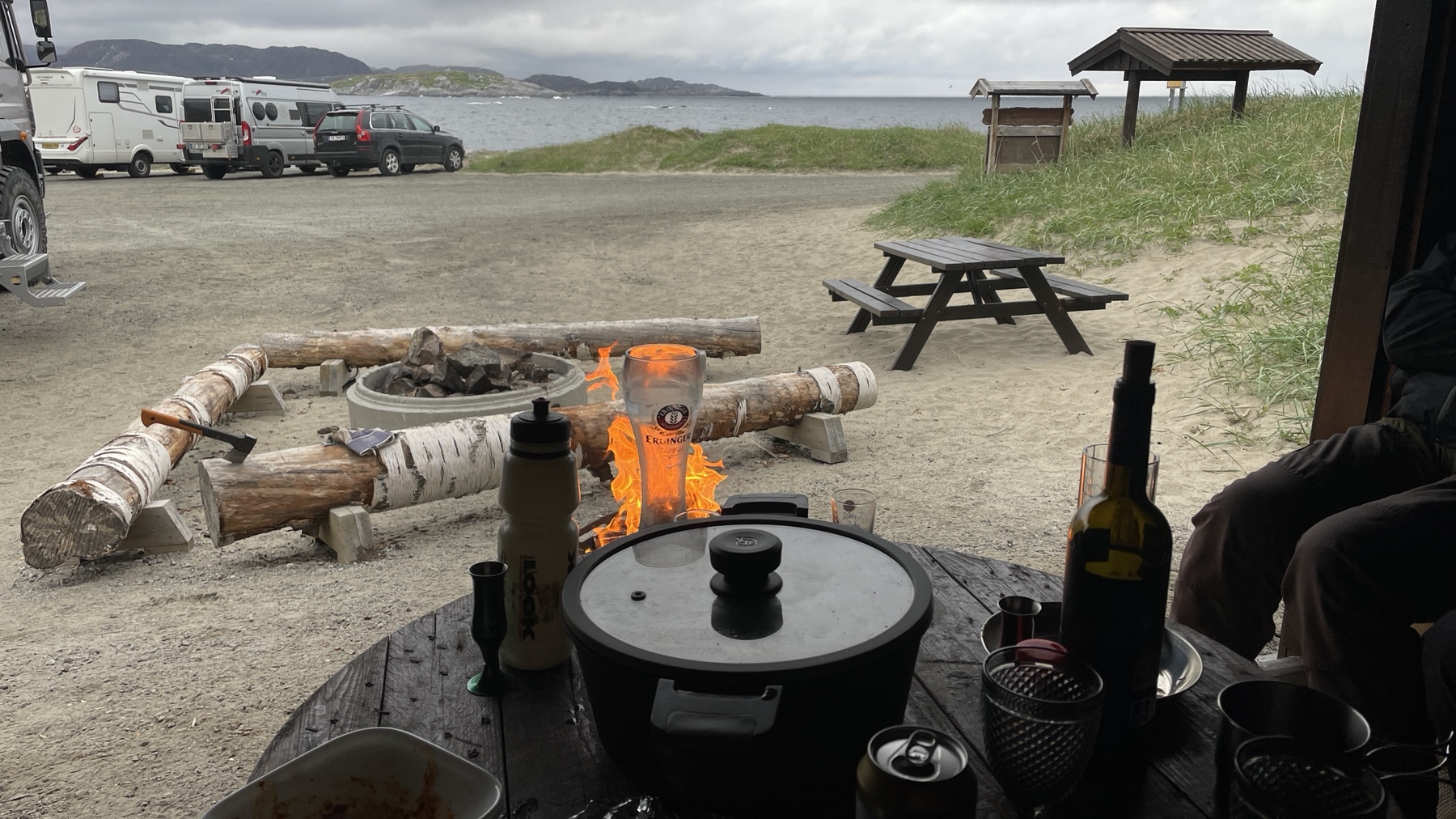
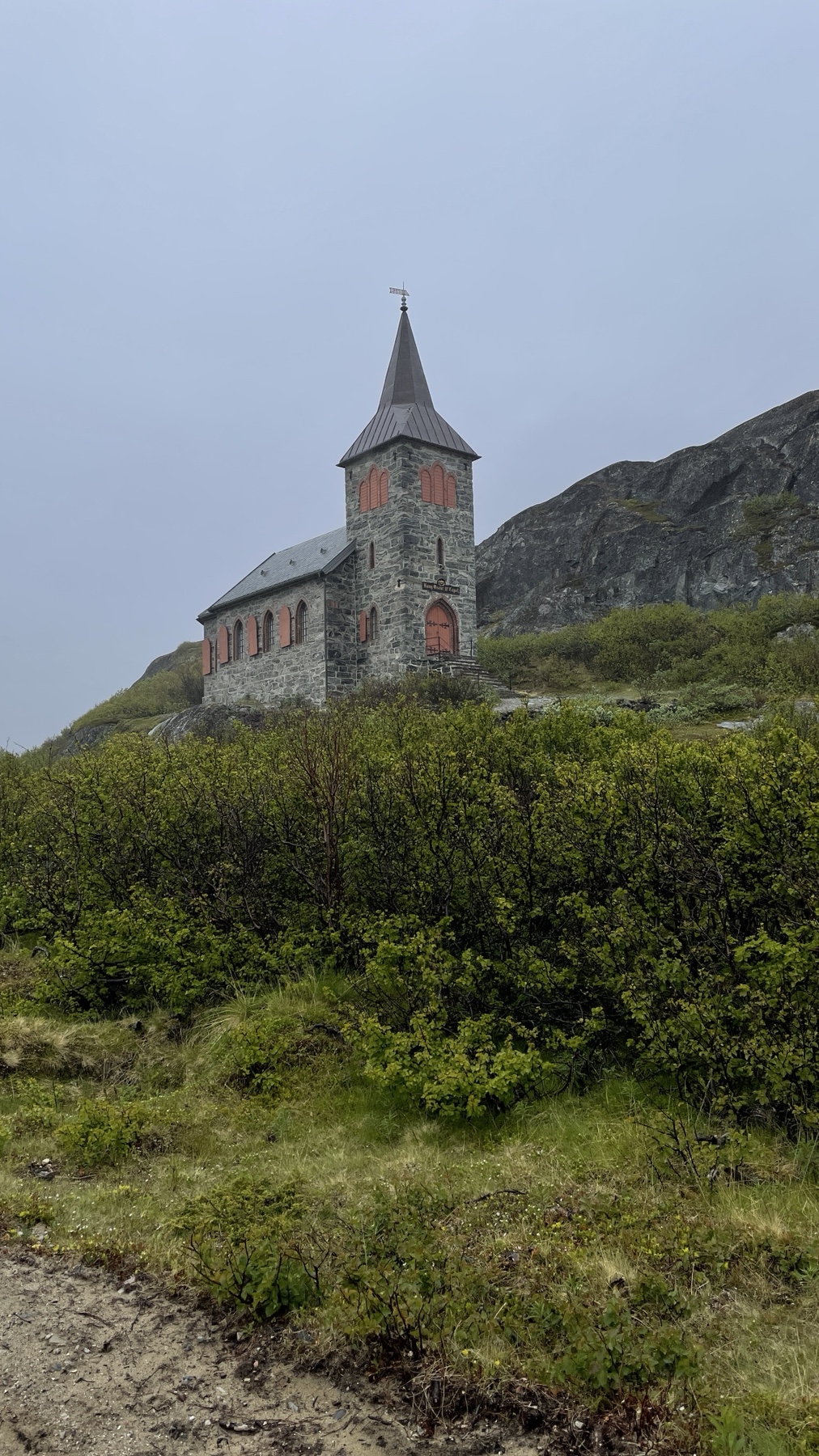
That’s the end of this part of the trip as we are now in Finland for a few days. We are making our way back to Norway to meet friends for a week’s holiday in a house on a fjord near Tromso and from there we start making our way back to the UK via a few weeks in Sweden.
